Cabo San Lucas Mexico (Daily Diary)
Cabo San Lucas (Spanish pronunciation: [ˈkaβo san ˈlukas], "Saint Luke Cape"), also known simply as Cabo, is a resort city at the southern tip of the Baja California peninsula, in the Mexican state of Baja California Sur.
As of the 2020 Census, the population of the city was 202,694. Cabo San Lucas and the neighboring San José del Cabo are collectively known as Los Cabos. Together, they form a metropolitan area of 351,111 inhabitants.

Rated as one of Mexico's top tourist destinations, Cabo San Lucas is known for its beaches, scuba diving locations, Balnearios, the sea arch El Arco de Cabo San Lucas, and marine life. The Los Cabos Corridor has become a heavily trafficked vacation destination for tourists, with numerous resorts and timeshares along the coast between Cabo San Lucas and San José del Cabo.
The waters around Cabo are home to marine wildlife including rays, sharks, mahi-mahi (dorado), and striped marlin.
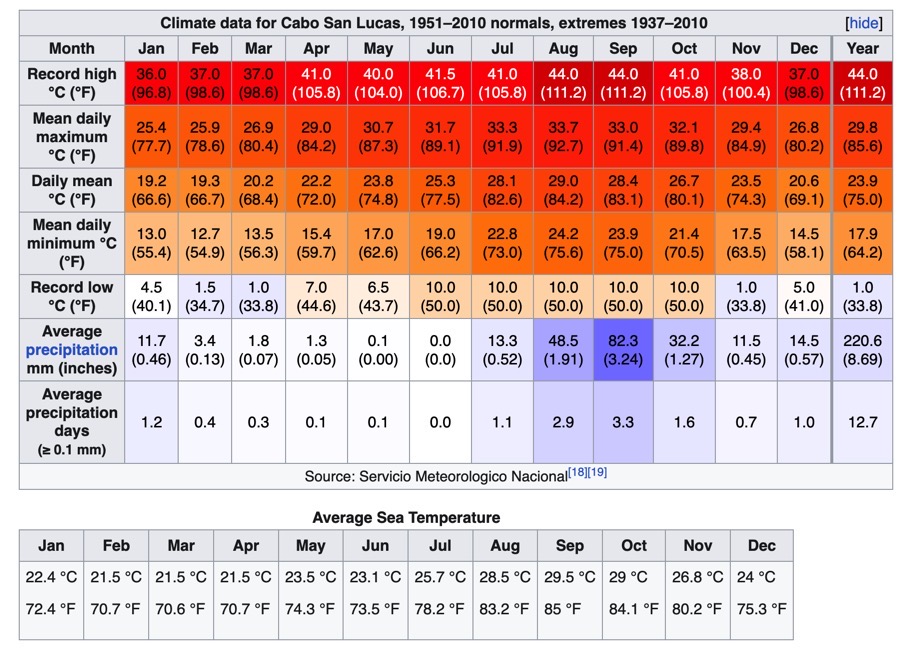
METATE Legendary Cooking Class! (Four Hours)
Indulge your taste buds with an intimate and informative cooking class, as you experience an exciting journey through the culture, icons, ingredients and culinary traditions of Mexico.
Highlights
- Take an air-conditioned ride to a local restaurant (Metate), where you are welcomed with a delicious Jamaican flower-based drink and meet with your talented chef. Begin your culinary adventure with a stroll through the restaurant's garden, where you learn how to choose the best and freshest ingredients.
- With these local ingredients in tow, dip your toes into the field of mixology, as you discover how to create another delicious drink - based on mint, mezcal and basil. After, your personalized cooking experience begins in earnest, as the chef helps you transform fresh ingredients into four authentic Mexican dishes, including fish ceviche, glazed pork leg and flan.
- Of course, once your cooking class comes to an end, sit down and embrace the fruits of your labor, as you savor the very dishes you helped to create. After, enjoy a delectable tequila tasting, along with some time for shopping, before returning to your awaiting ship with a few new recipes to impress friends and family back home.


We had to change our clocks, but we forgot to tell the computers to change them so we were an hour late automatically. Mary had to rush to her 8:30 am appointment when they called at 8:45 am! She went to the spa, and I went to the coffee shop and brought her a latte. Mary without her coffee is a site you do NOT want to see.
On the way into port, Jon spotted the dolphins who came out to welcome us. He waved enthusiastically, but they just flipped upside down and started doing what looked like synchronized swimming. "I knew they were talented," Jon joked, "but I didn't expect a full aquatic performance! Next stop, Dancing with the Dolphins!"
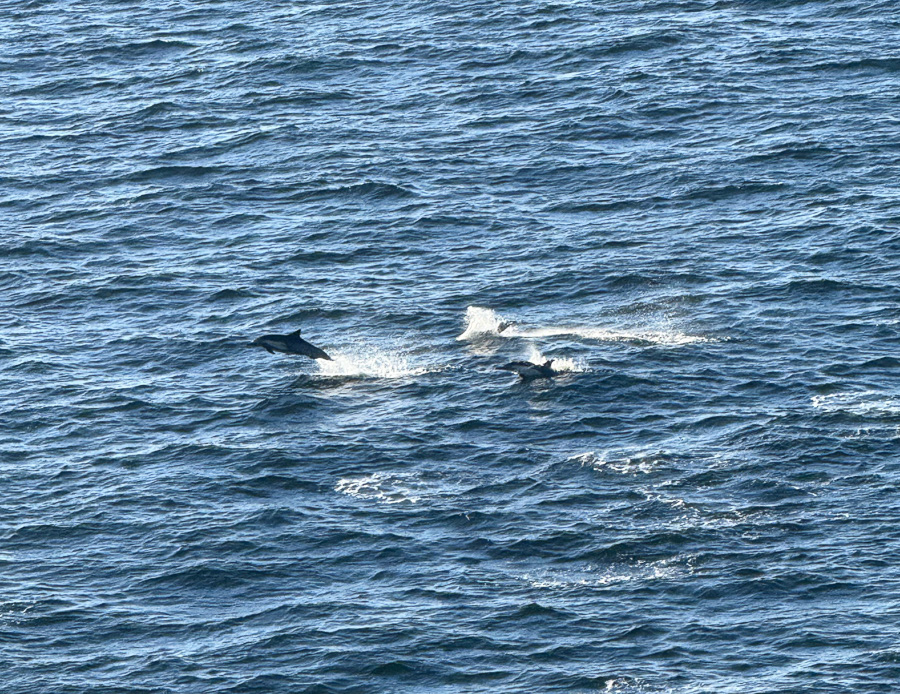
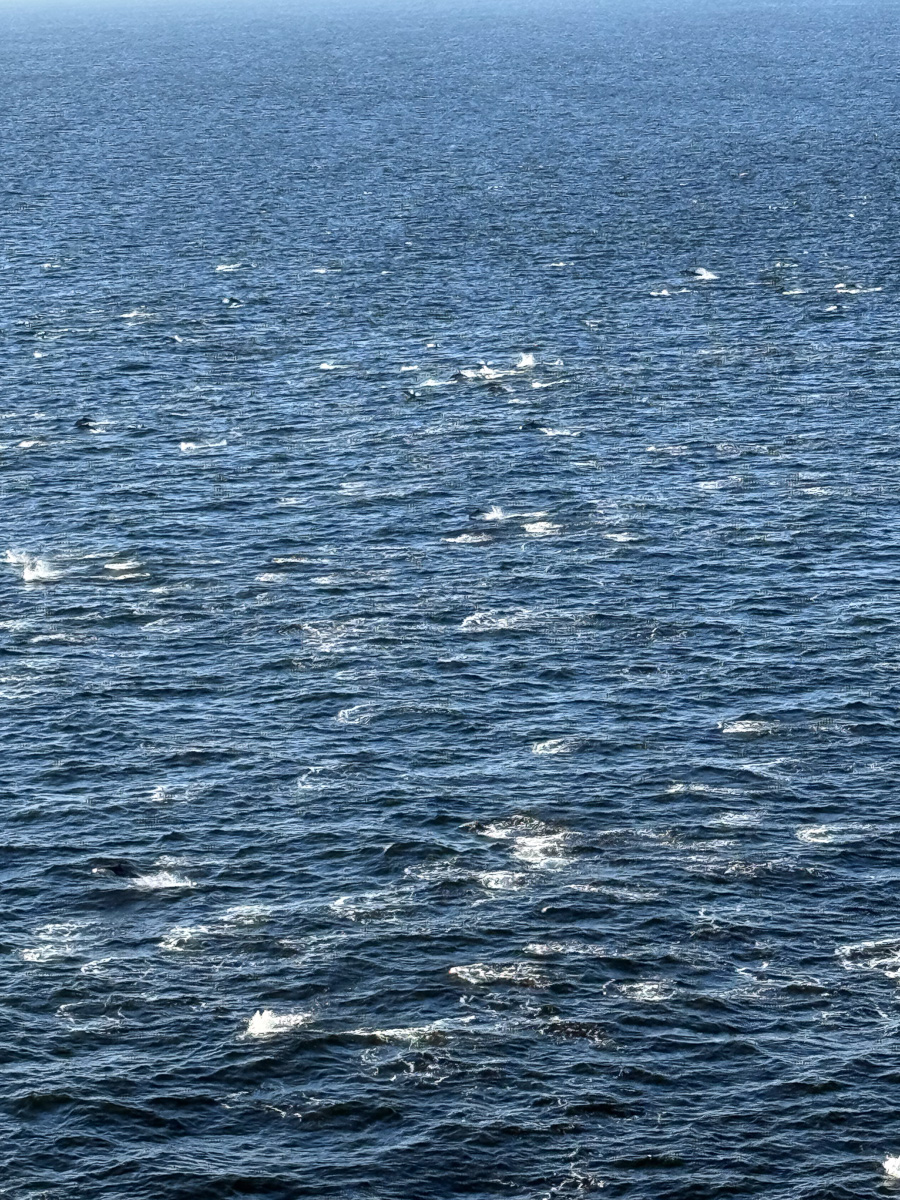
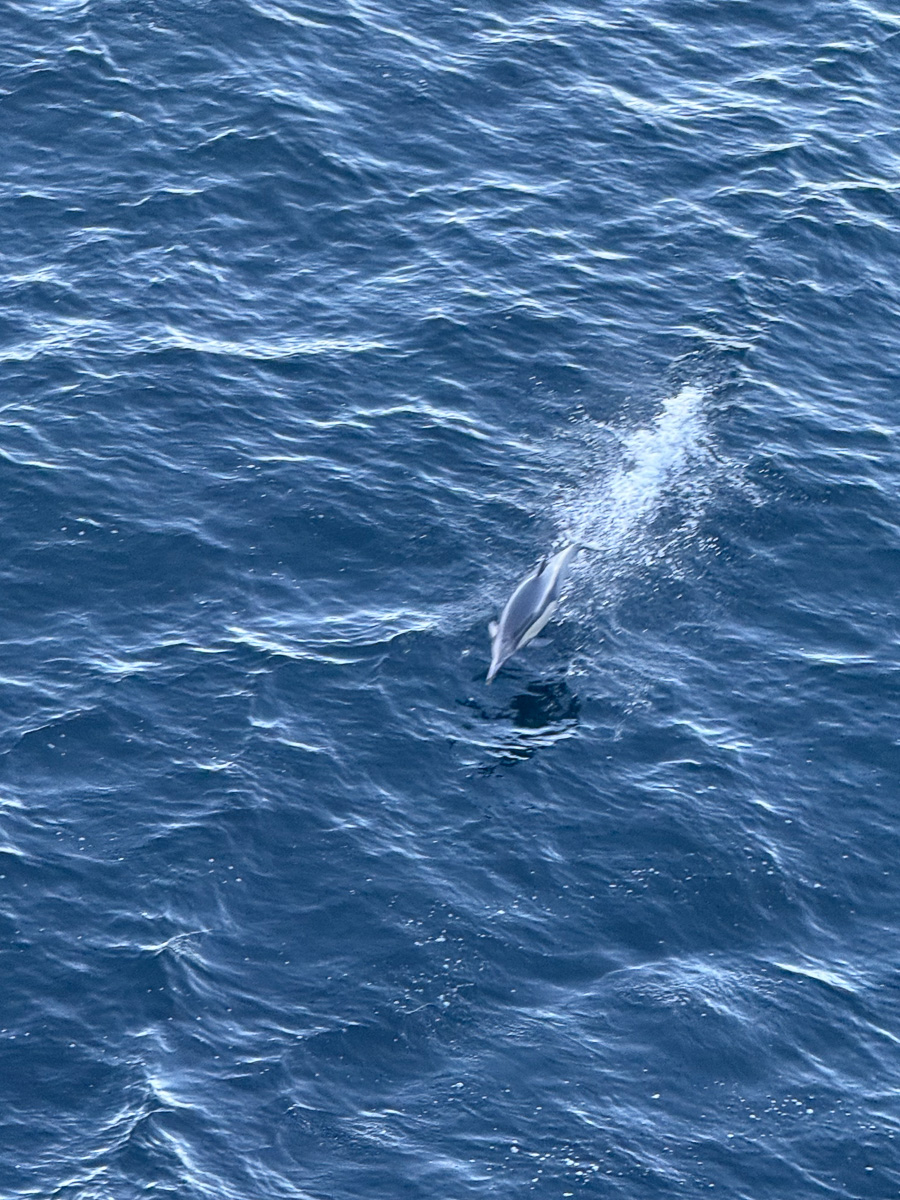

We pulled into port at noon, and the weather was perfect! We left the ship around noon today and headed for our first Mexican cooking class.
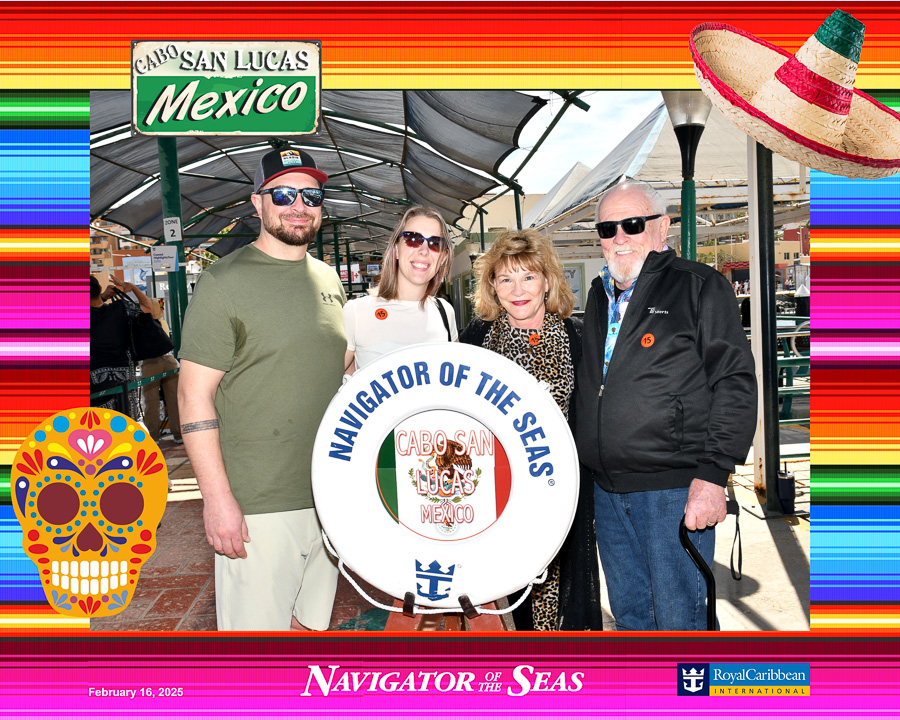
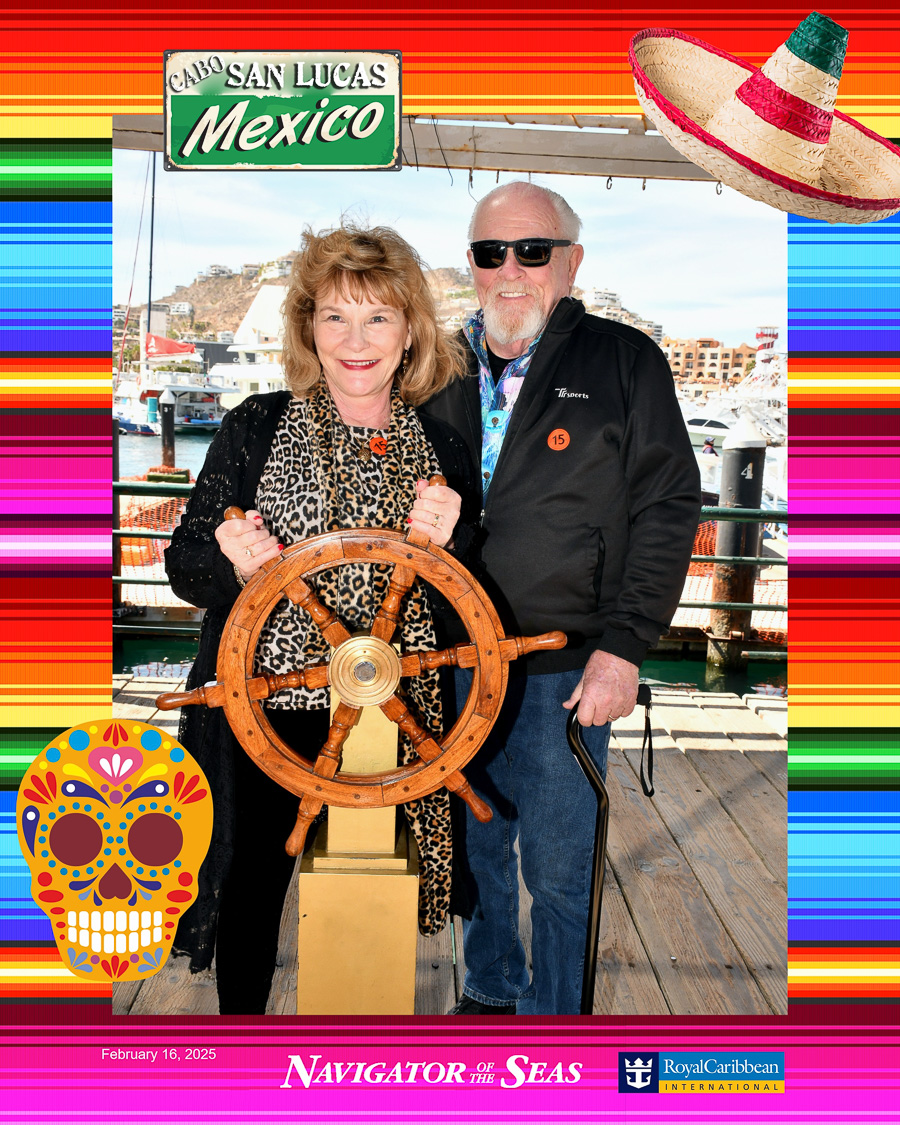
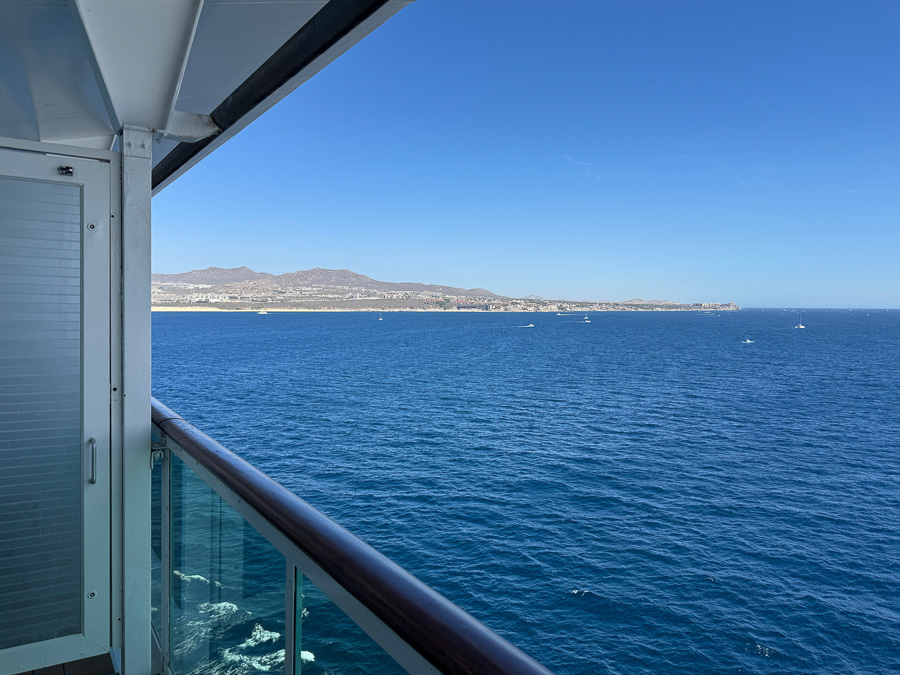
A beautiful day!
The ship was too big to dock, so we took tenders to the city. It was a short ride and quite pleasant, with the temperature in the mid-70s.
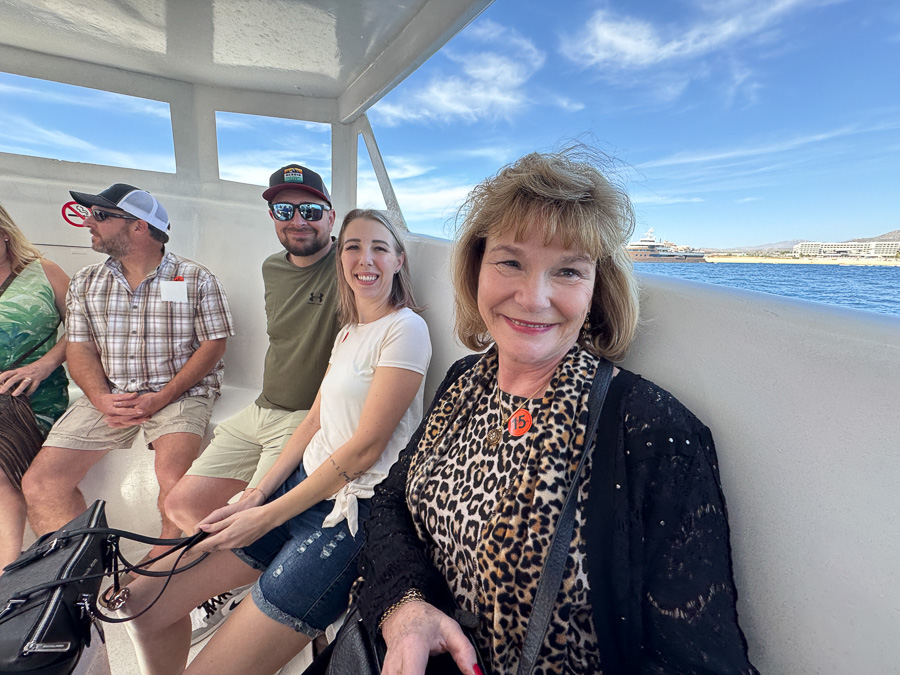
We did not even get wet!
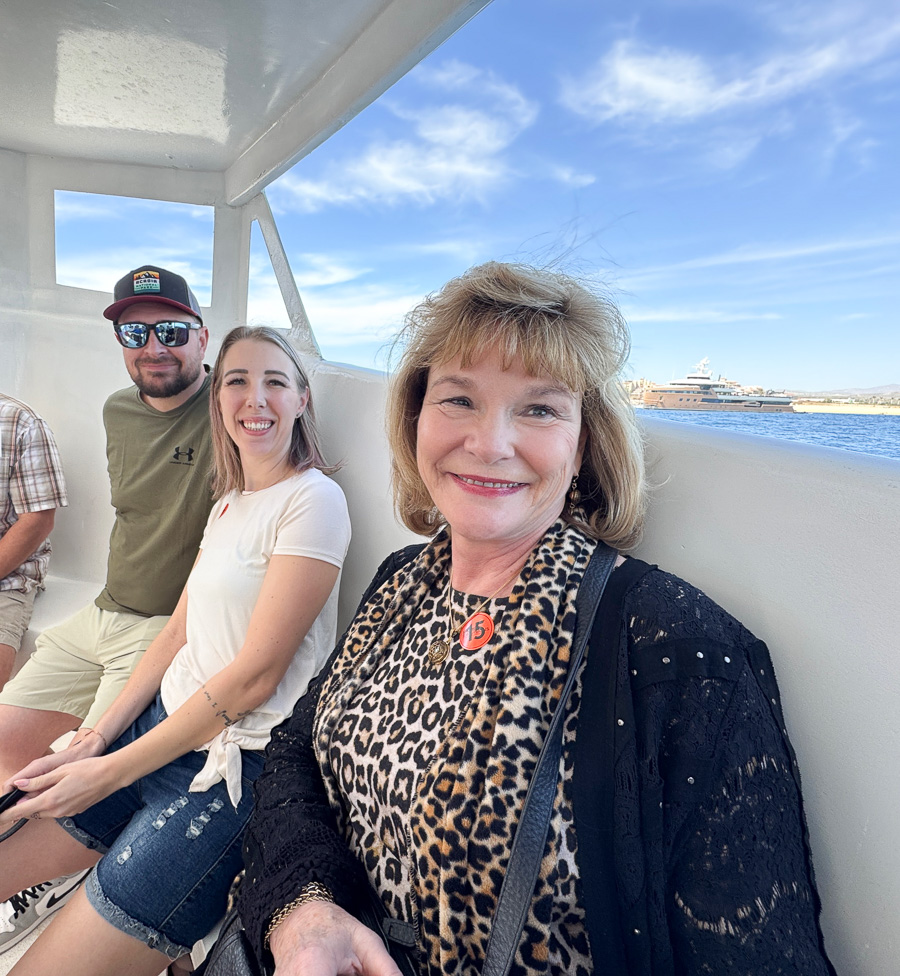
Lookout cooking class, here we come!
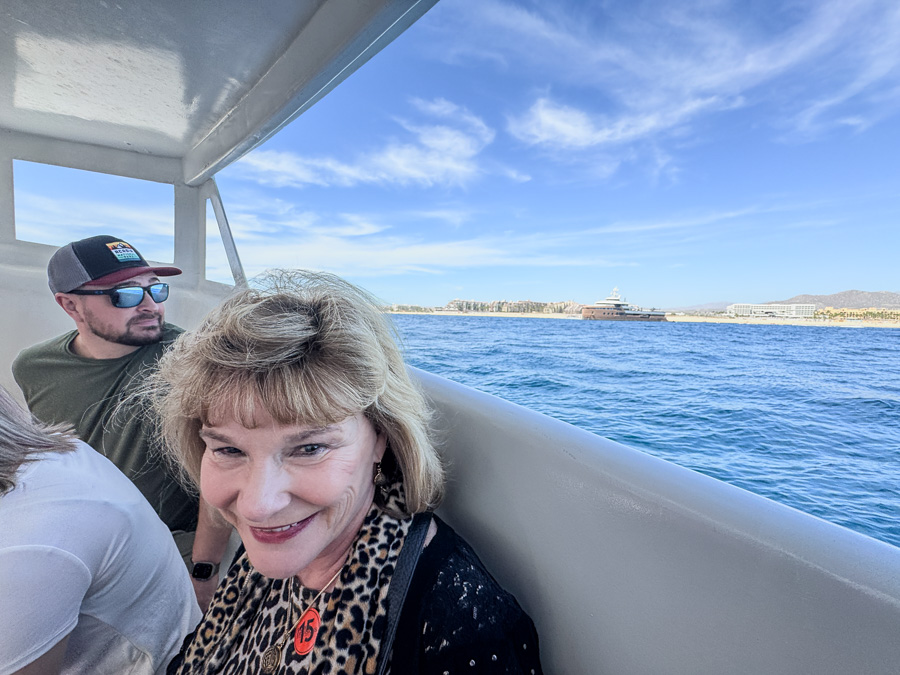
The pier is just a 1/2 mile away!
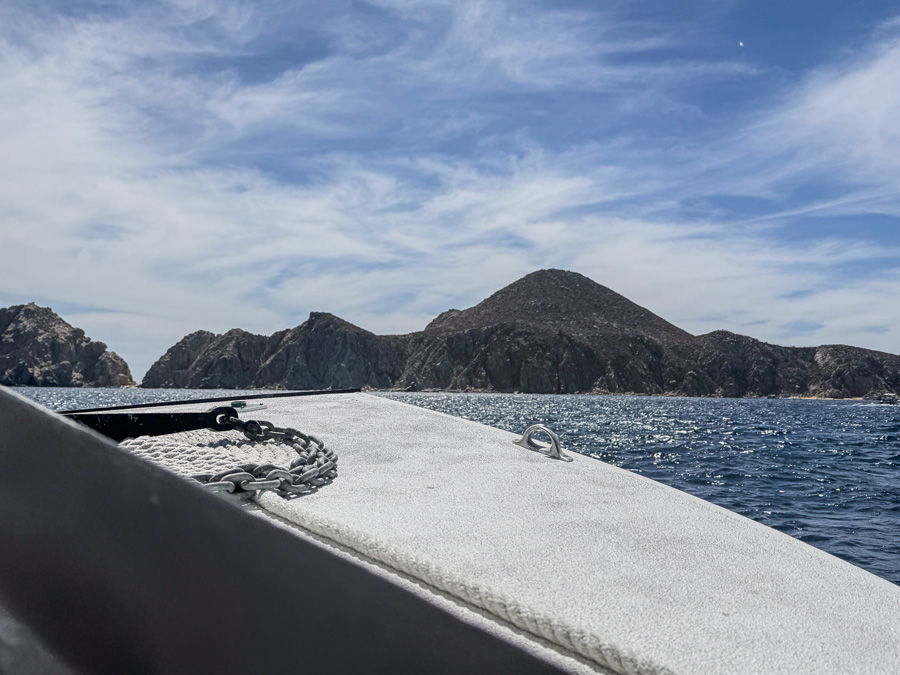
The water was splendid!

We took a small bus to the METATE CAFE, where the class was taught. It was about ten minutes from the port along Highway One.
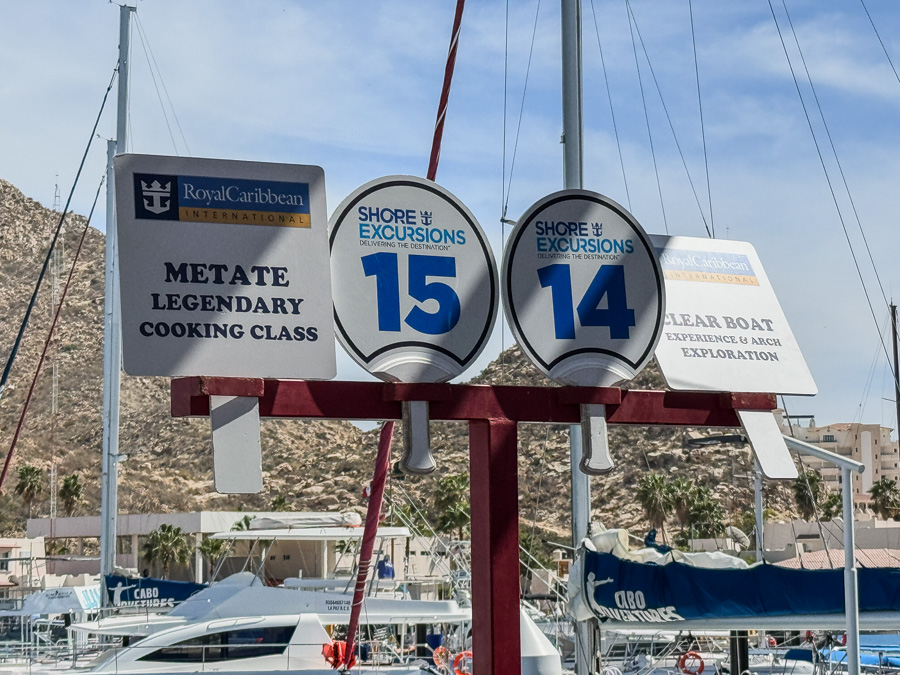
We found our group and off we went.
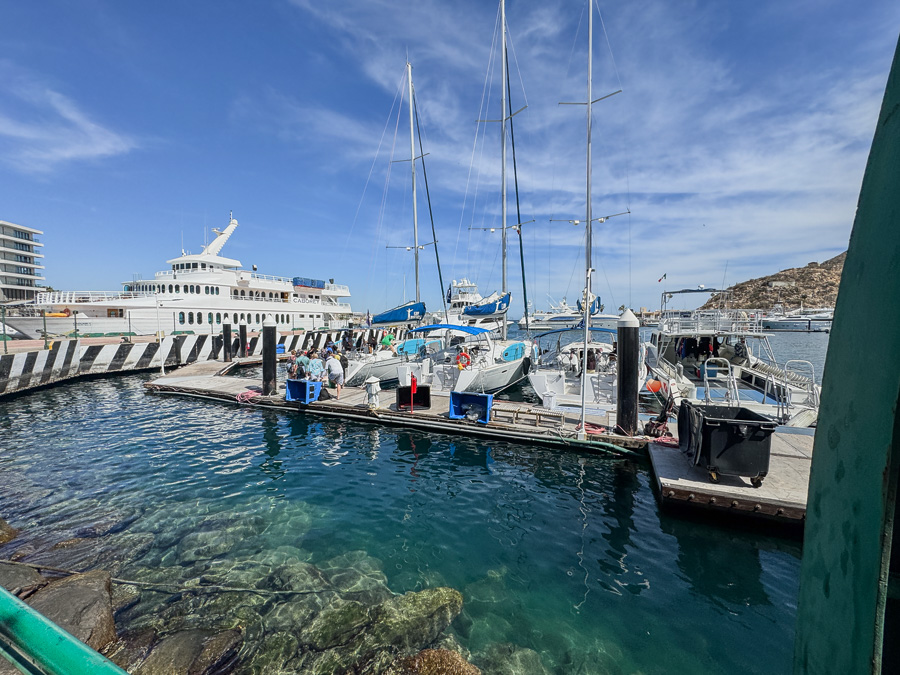
There were many excursions planned today!
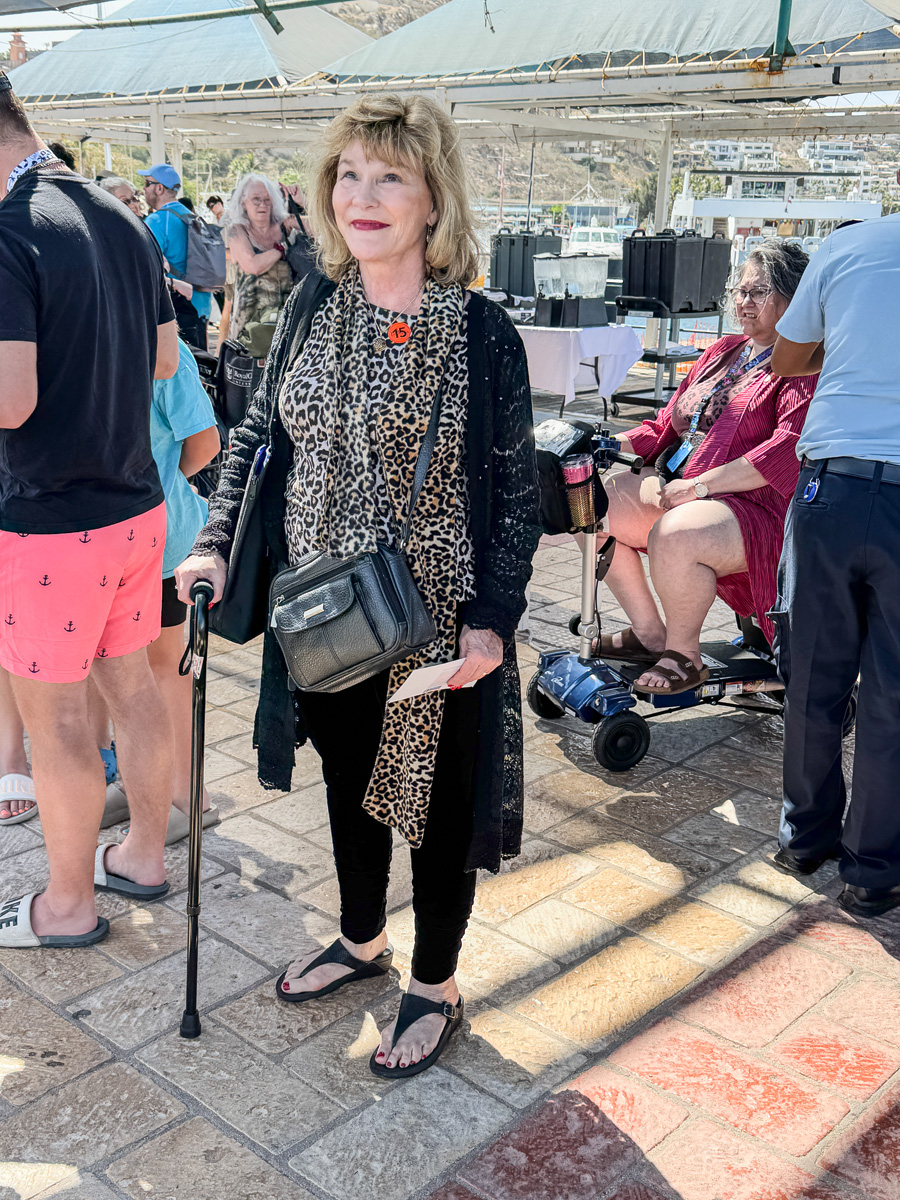
We read the signs carefully!
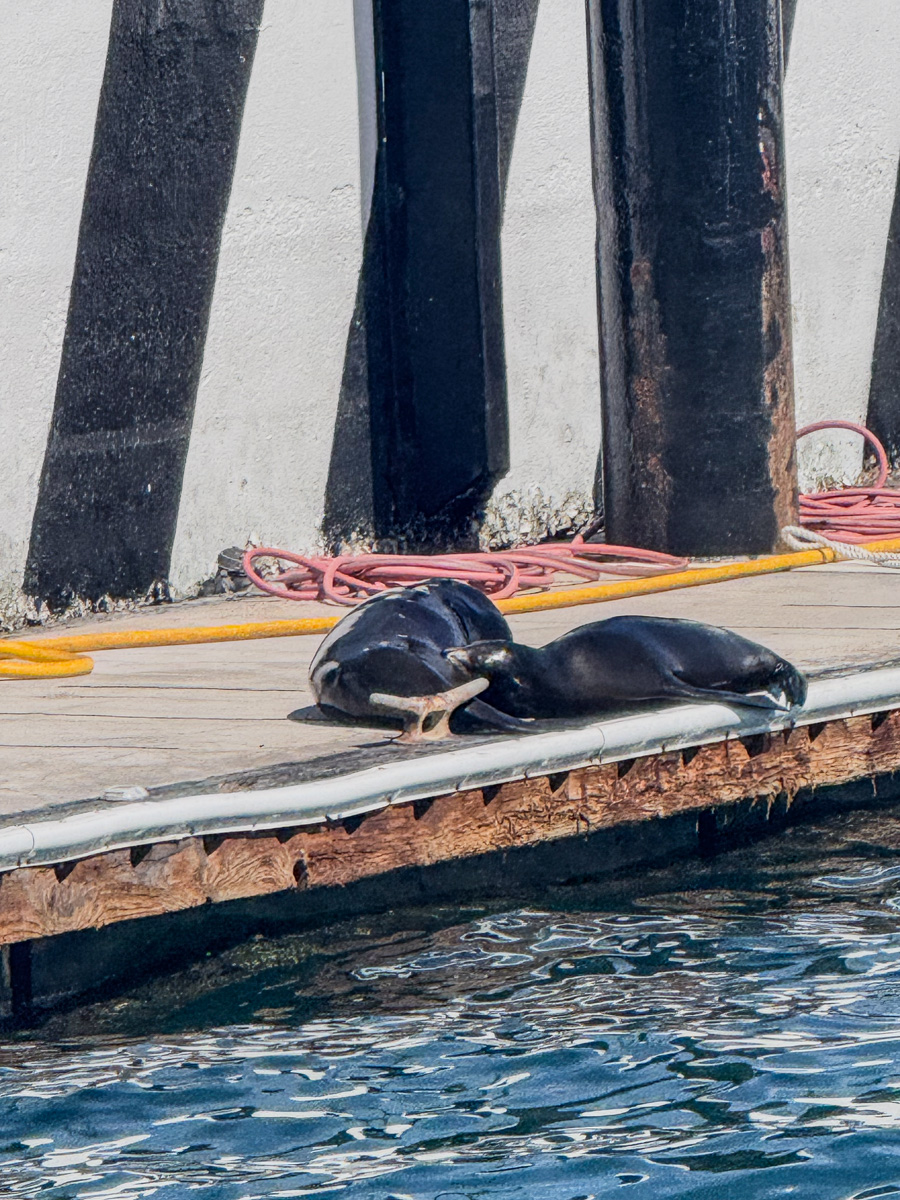
There were sea lions everywhere!

We took a small bus to the METATE CAFE, where the class was taught. It was about ten minutes from the port along Highway One.
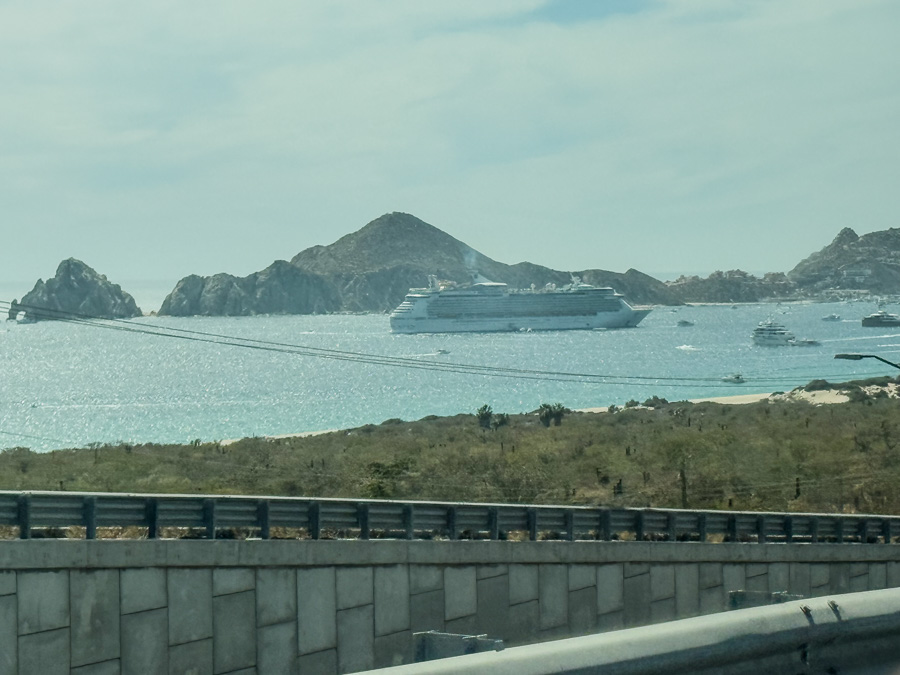
Our ship looked small in the harbor!
After arriving and settling in, we got a tour of the gardens before the cooking lessons began. Their property was interesting and well-maintained.
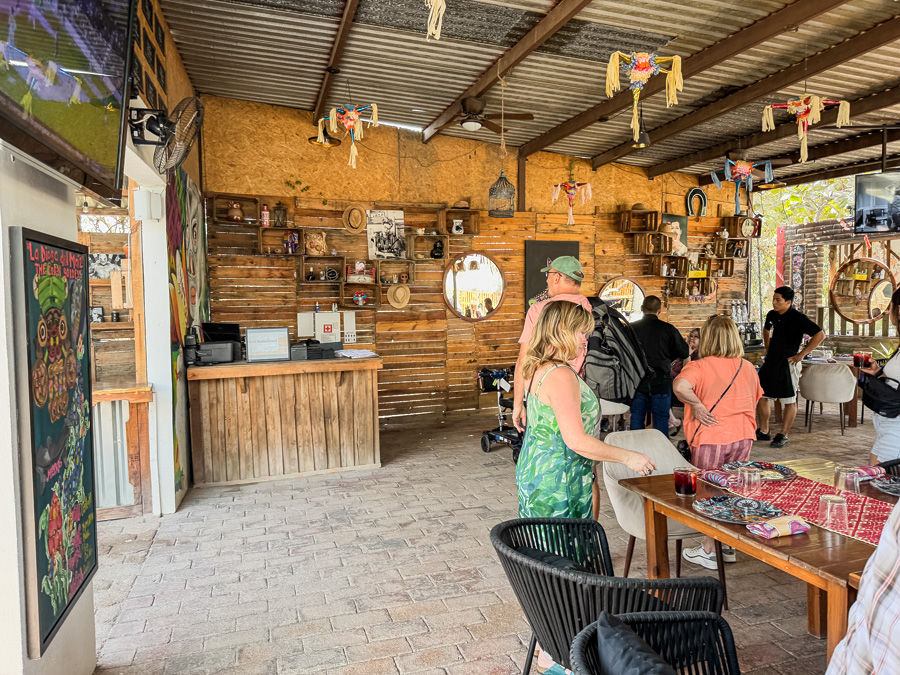
The cafe was quite pleasant.
We got a drink along with the tour! As the day progressed, we had several drinks!
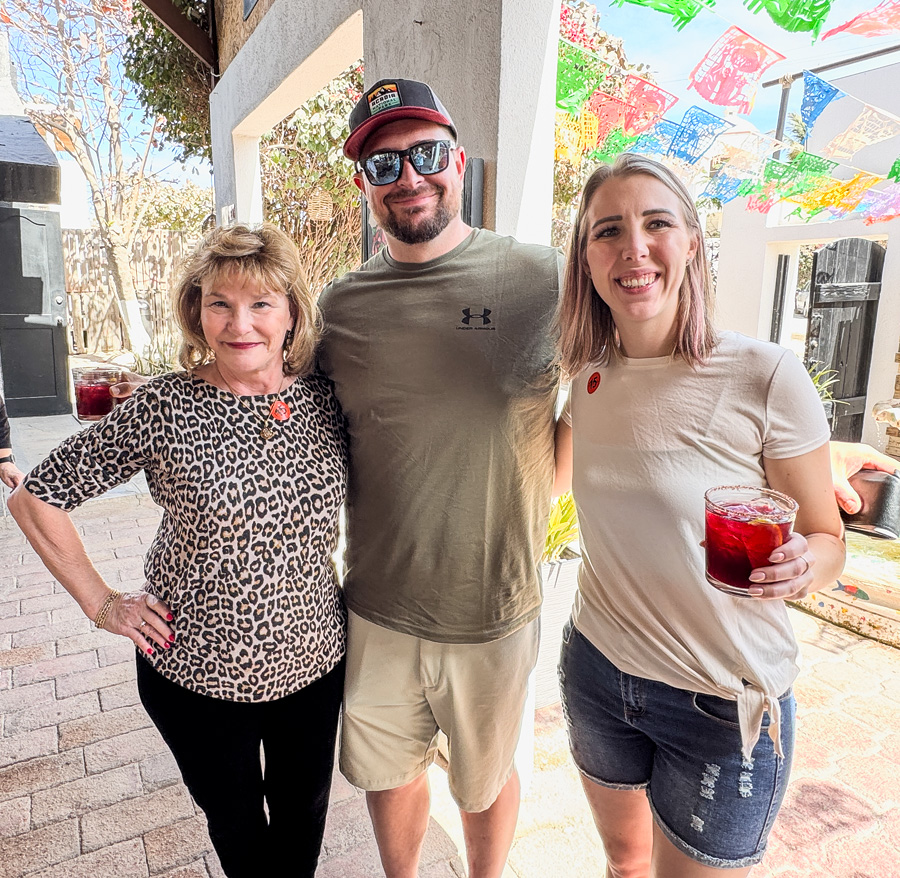
Did we say, drink??

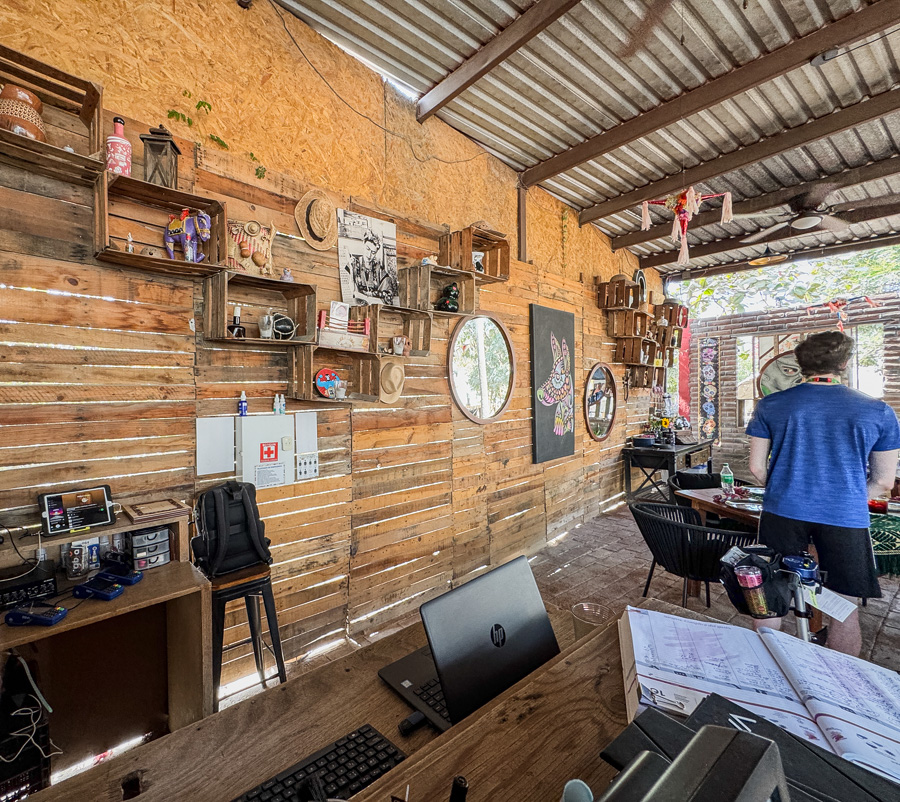
The tour guide showed us everything!
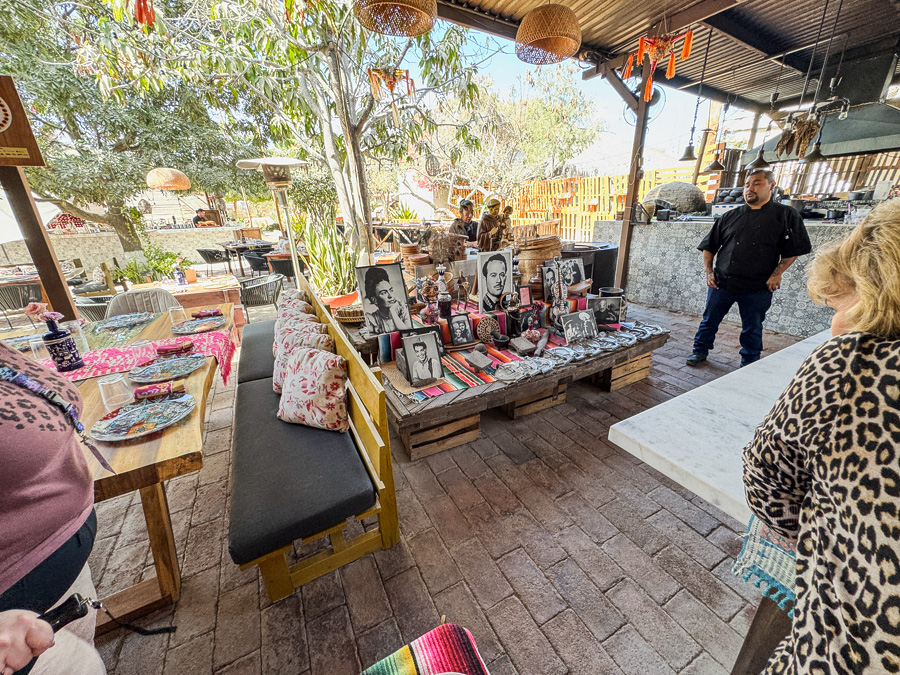
His collection of famous people was indeed interesting.
They had a tribute to Mexican movie stars. The bottom left was Cantiflas, who played David Niven's butler in the movie "80 Days Around The World".
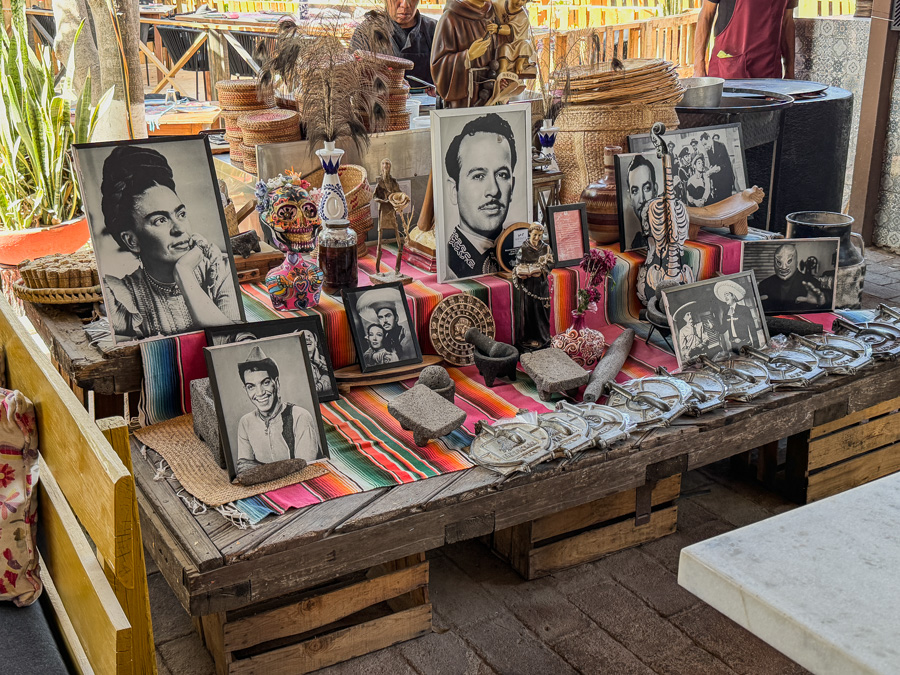
Cantinflas is on the bottom left-hand corner.
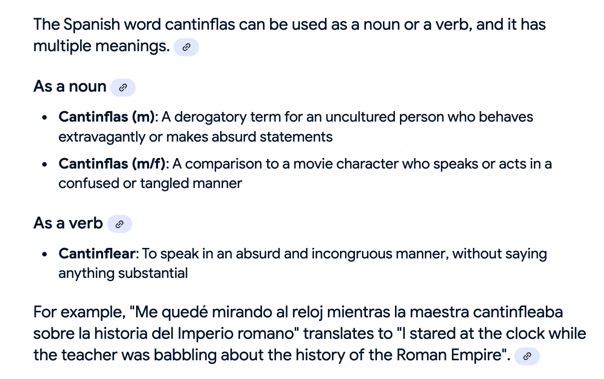
Did You Know? - Mario Fortino Alfonso Moreno Reyes, known by the stage name Cantinflas, was a Mexican comedian, actor, and filmmaker. He is considered the most widely accomplished Mexican comedian and is well-known throughout Latin America and Spain.
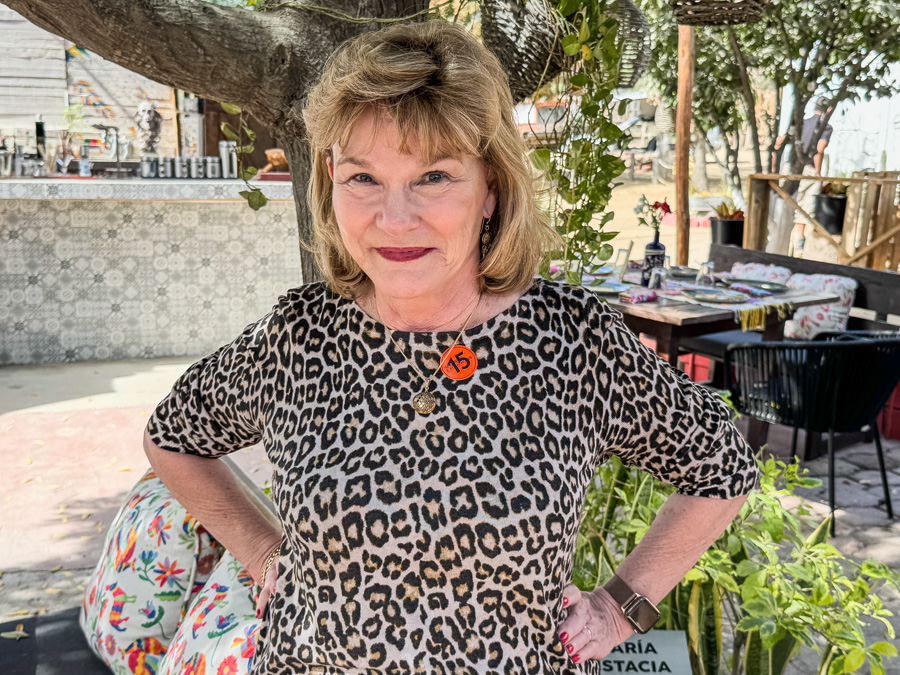
Go get'um tiger.
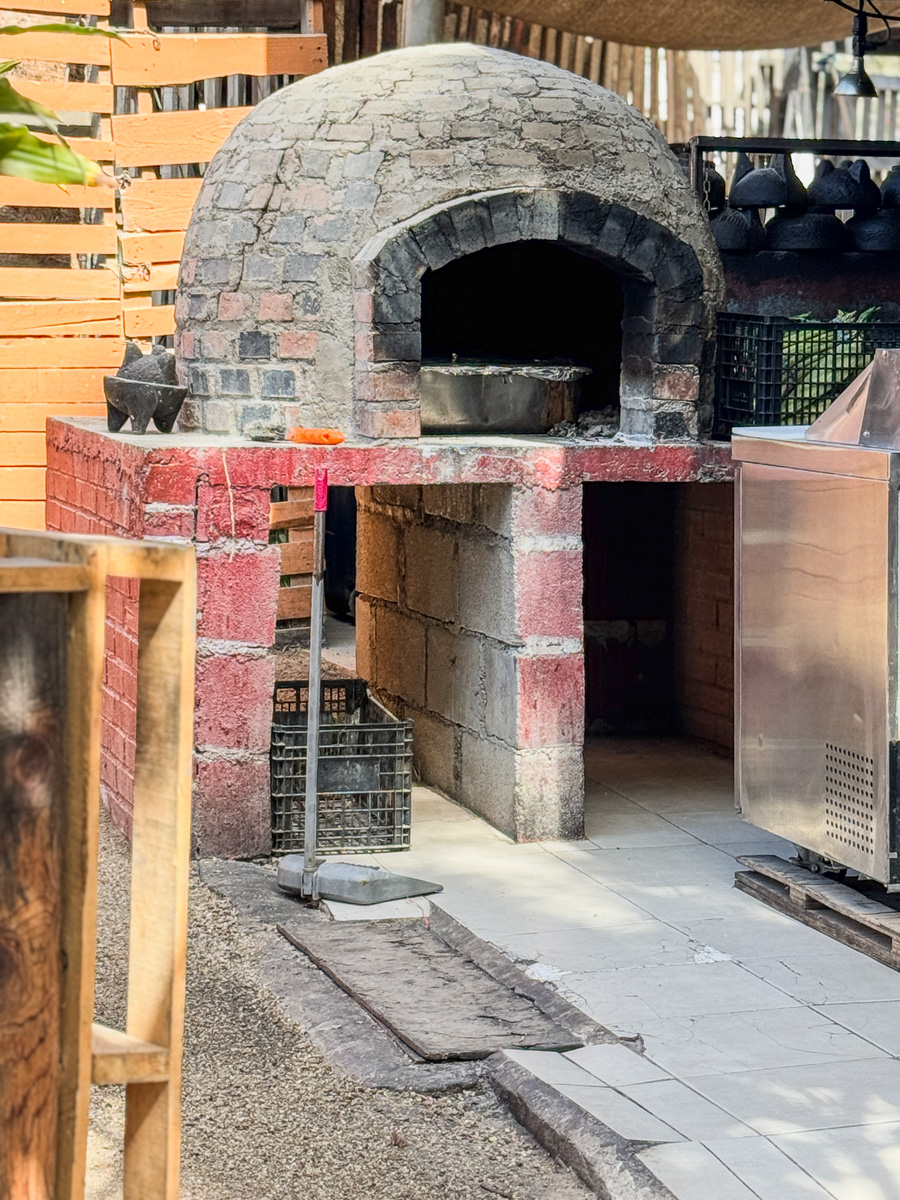
Pizza oven!
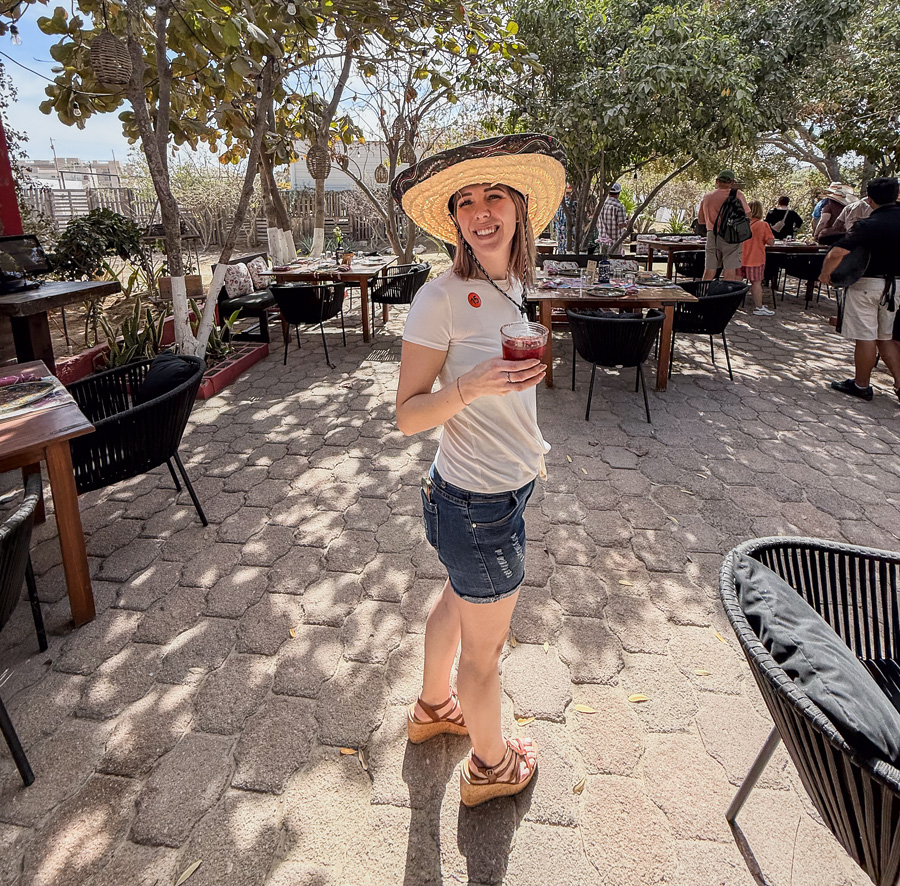
"Follow me!!"
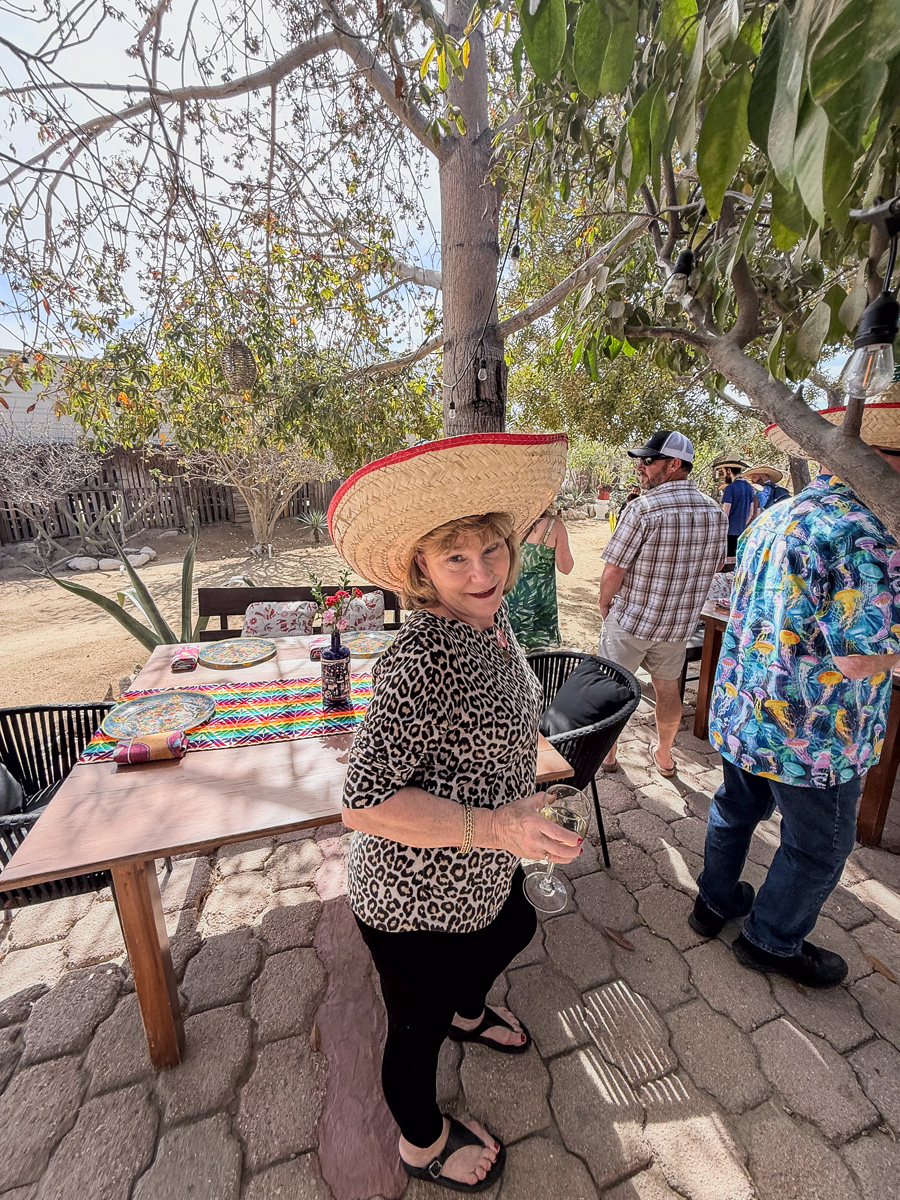
..and me too
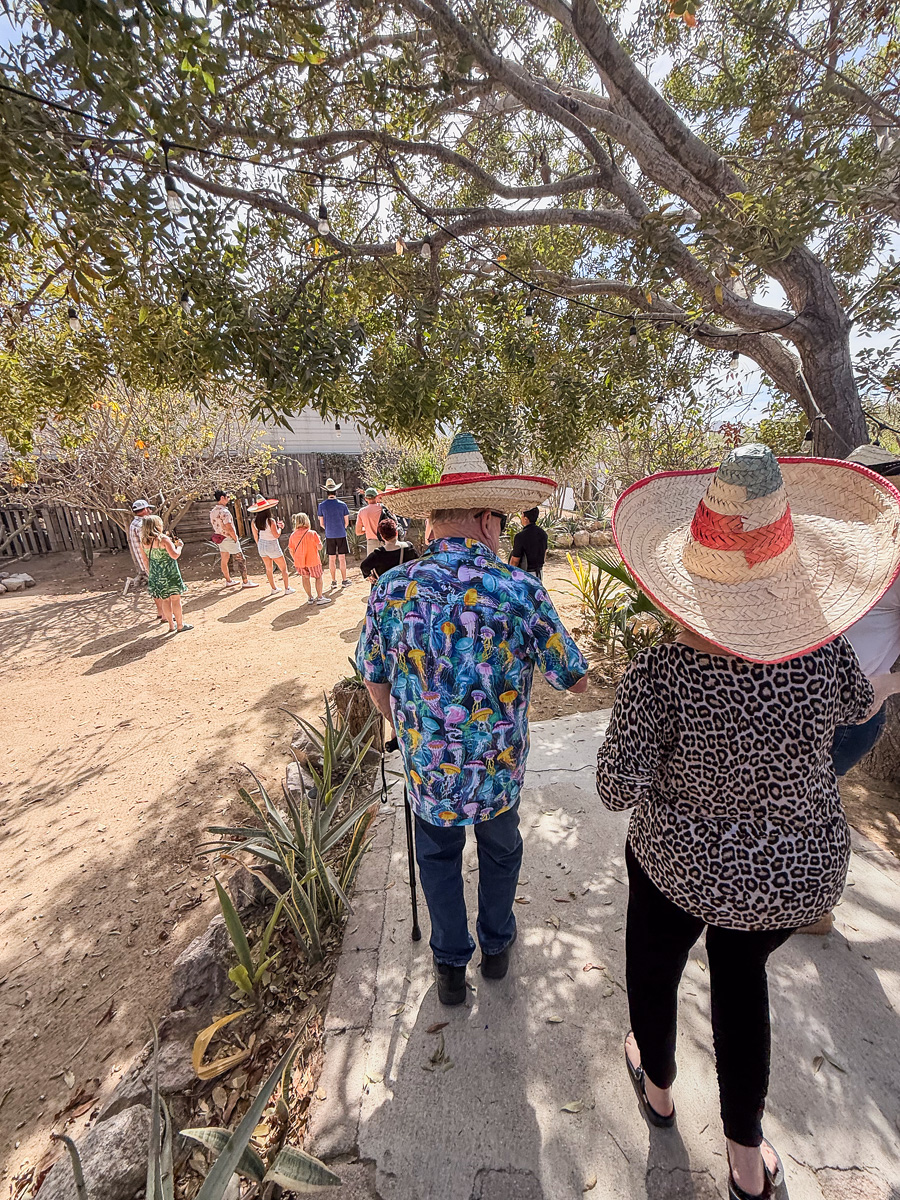
We are off and walking!
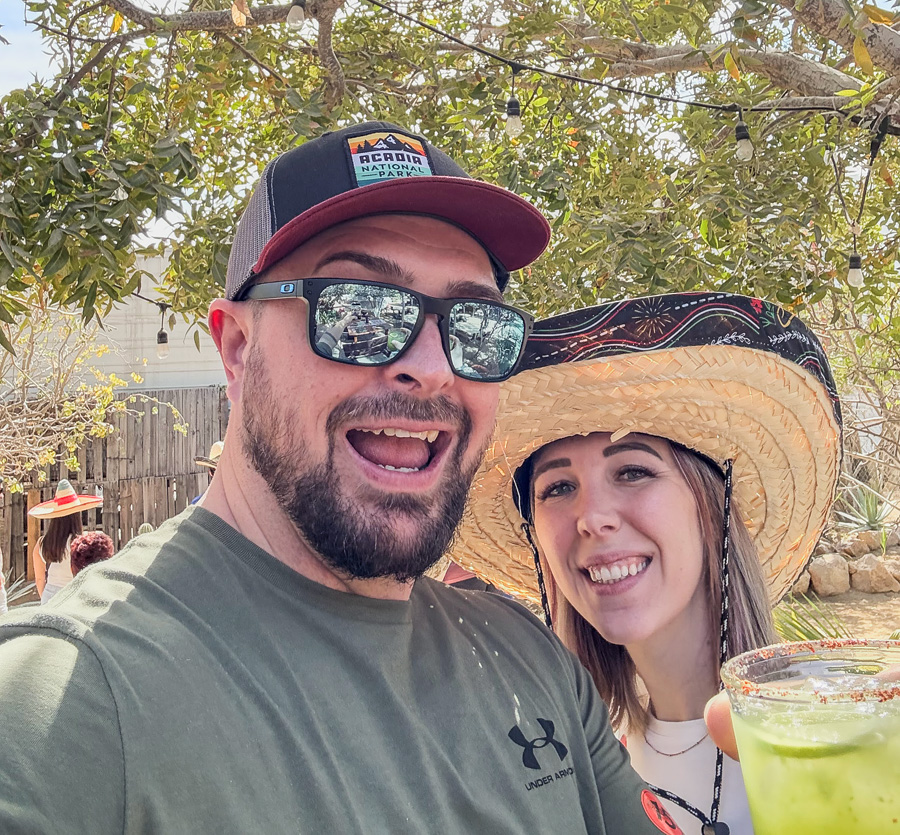
Margaritas, yeah!
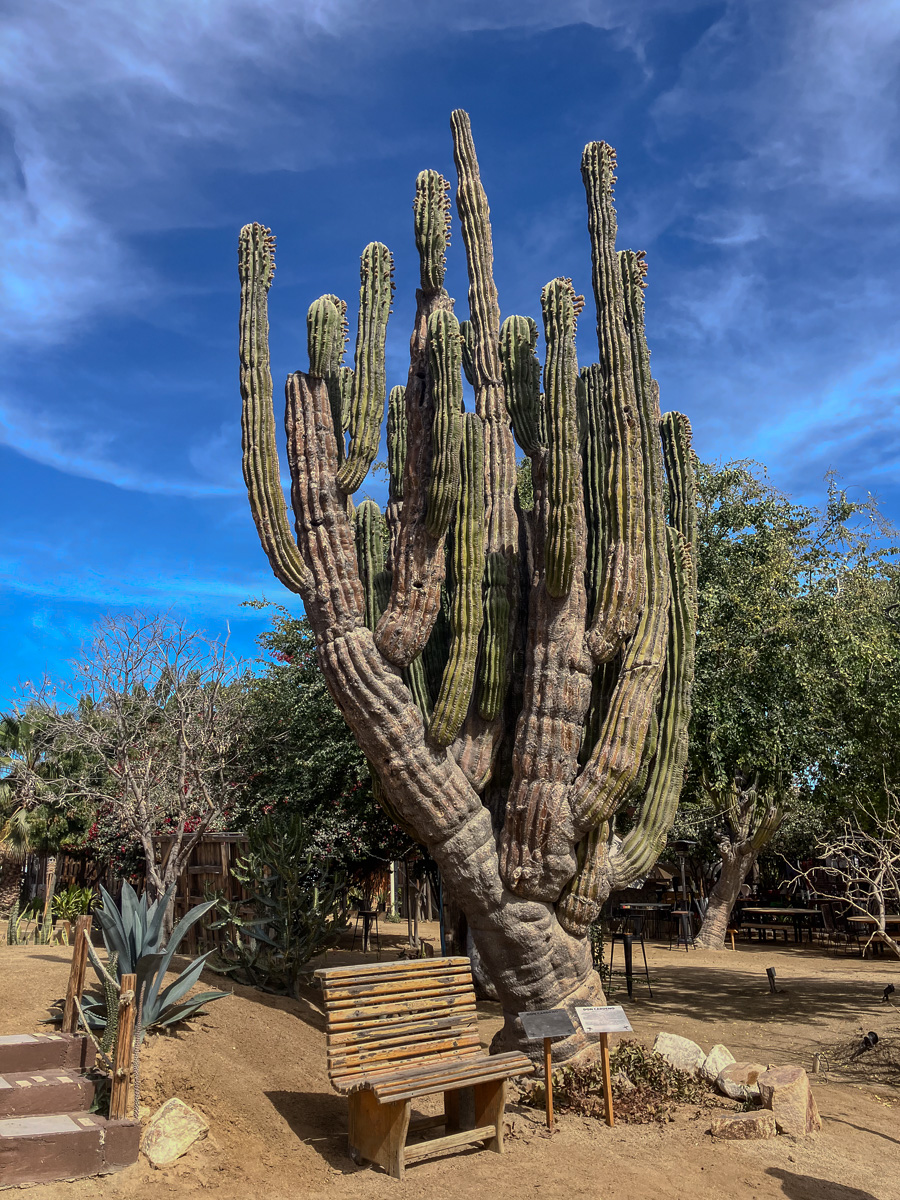
The tree was 150 years old!
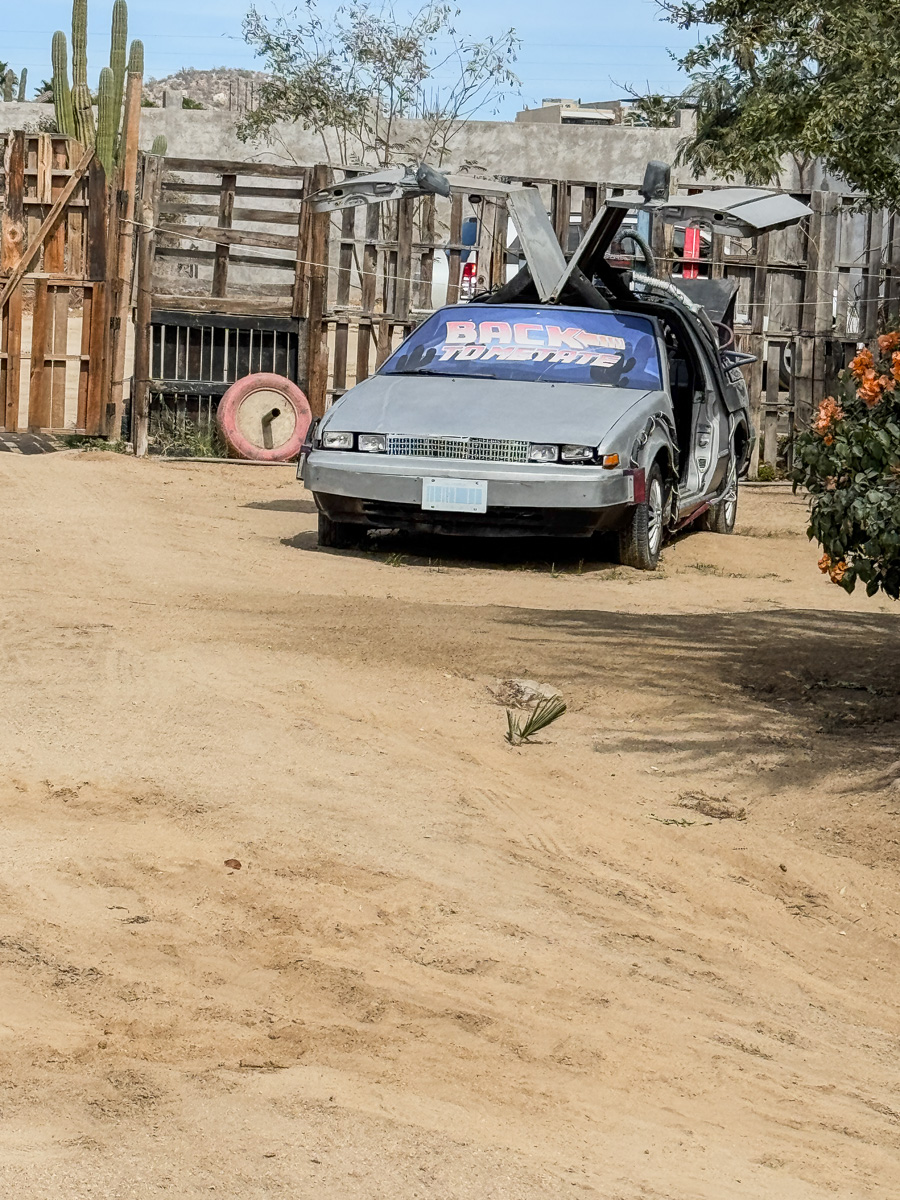
?????
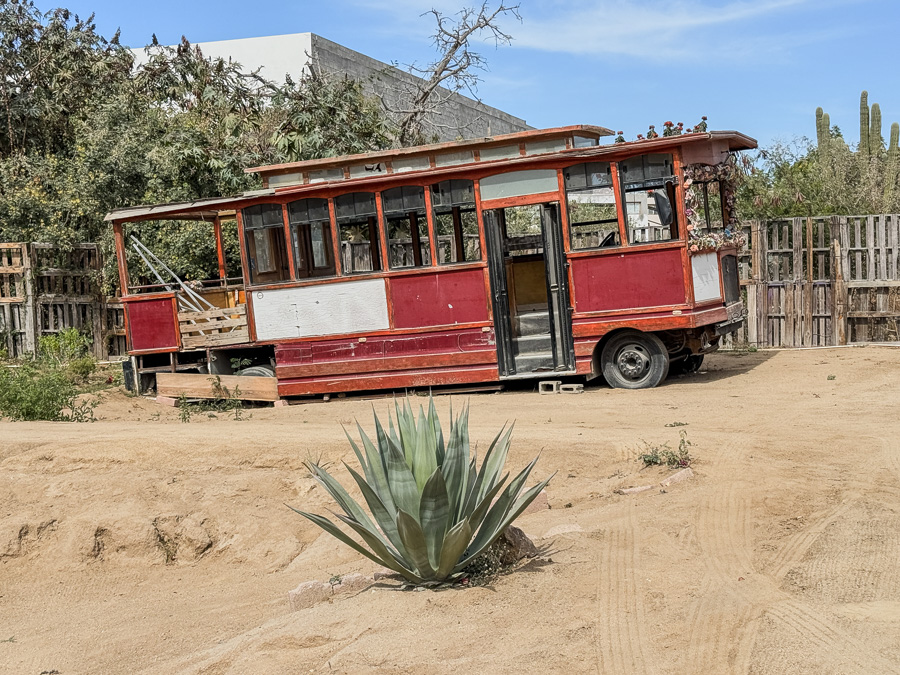
They may try to make it usable again!
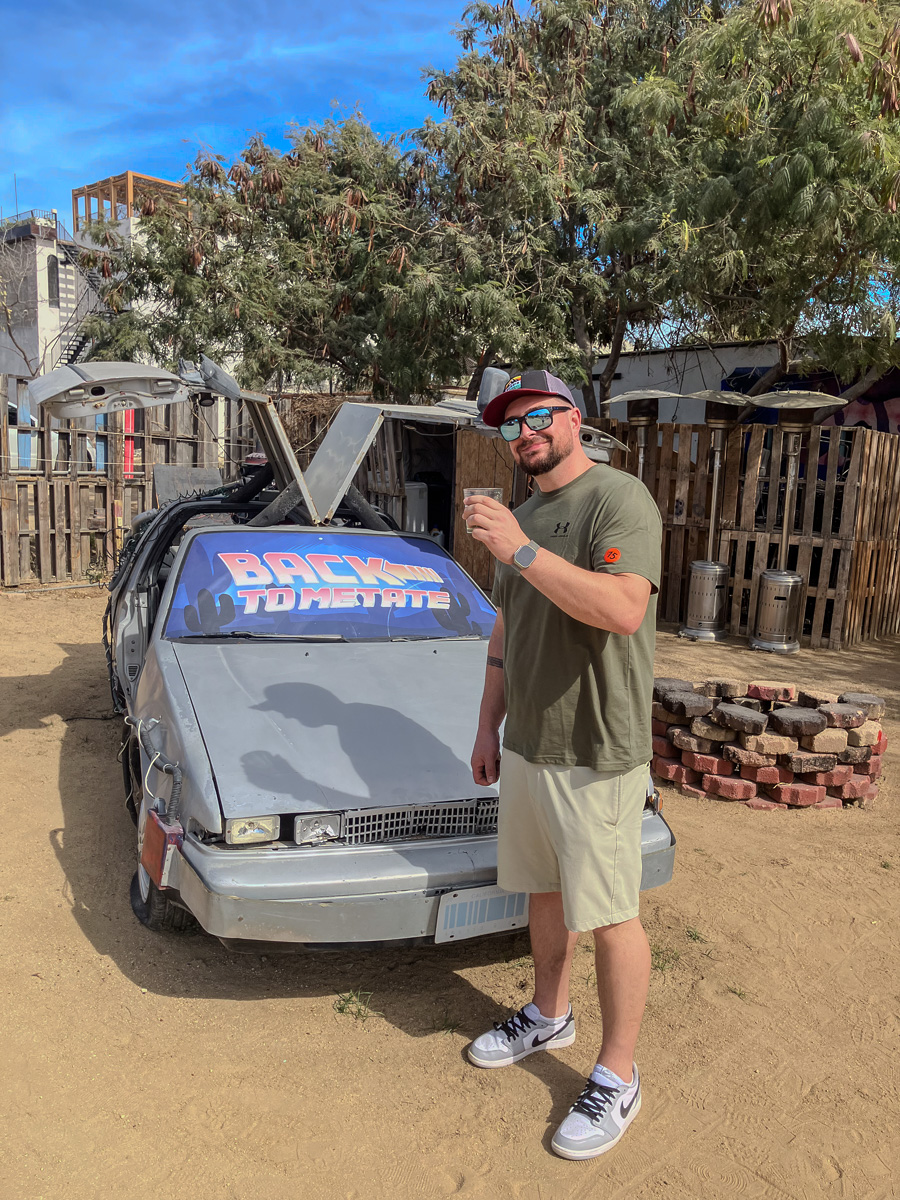
Perhaps a little bath might help?

Known varyingly as "Tequila con Vibor" (viper tequila) or "Tequila Cascabeloso" (rattling tequila), there exists a strain of agave spirits in which a live rattlesnake is drowned, imbibing the alcohol with venom and delicious reptilian flavor.
Regional lore maintains that the dying serpent releases a cocktail of medicinal chemicals upon it's expiration, supplementing the strength and charm of the liquor.
Putting snakes in tequila is primarily a novelty practice, often done for shock value, and is not a traditional or safe way to consume tequila; it's important to note that adding a snake to tequila can be extremely dangerous due to potential contamination and the risk of snake venom exposure.
Mezcal is made from the heart of the agave plant called the piña. The Agave genus is a member of the Agavoideae subfamily of the Asparagaceae plant family, which has almost 200 species. Mezcal is made from over 30 Agave species, varieties, and subvarieties, unlike tequila, which is made only with blue agave. 90% of Mexican mezcal comes from Oaxaca. Mezcal is generally consumed straight in Mexico and has a strong, smoky flavor. Though other types of mezcal are not as popular as tequila, Mexico exports the product mainly to Japan and the United States, and exports are increasing as the popularity of liquor grows.
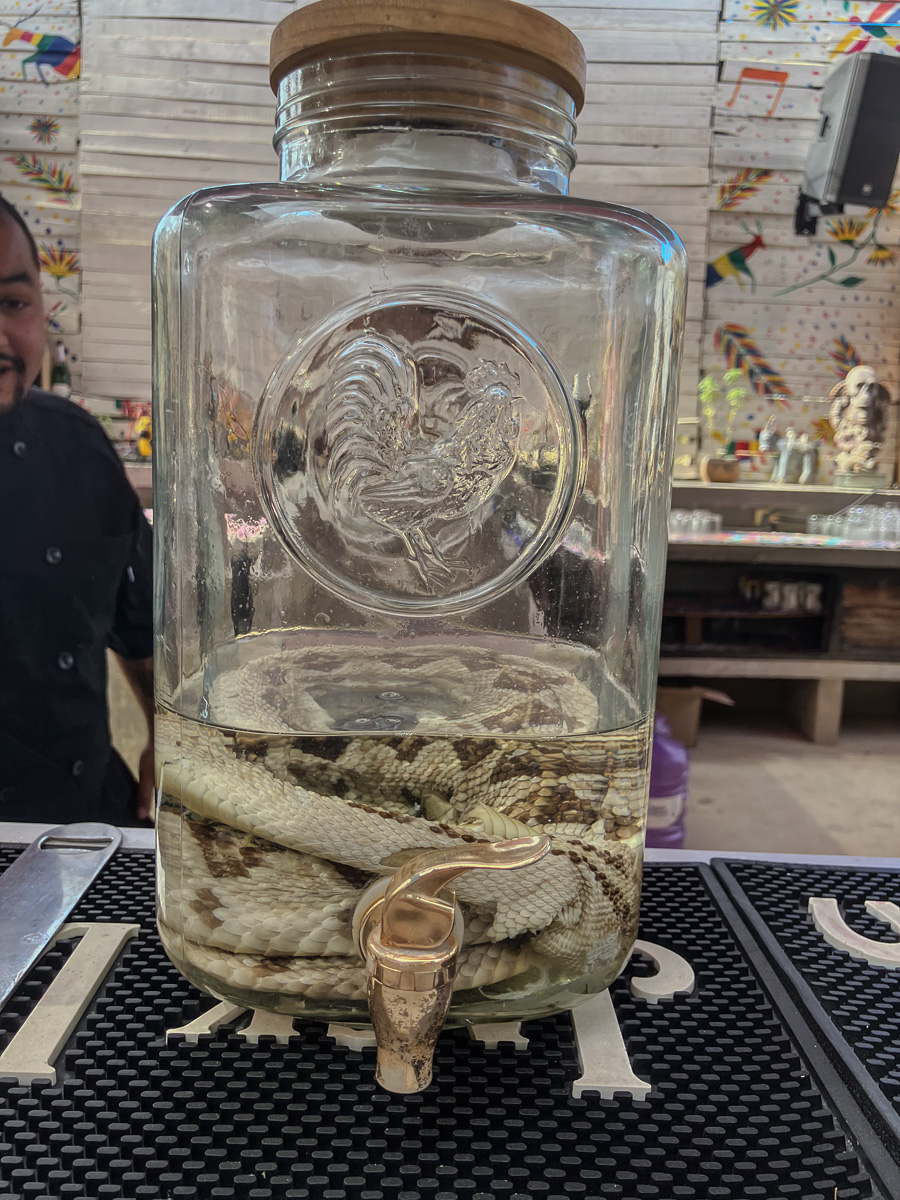
We could hear it hissing!
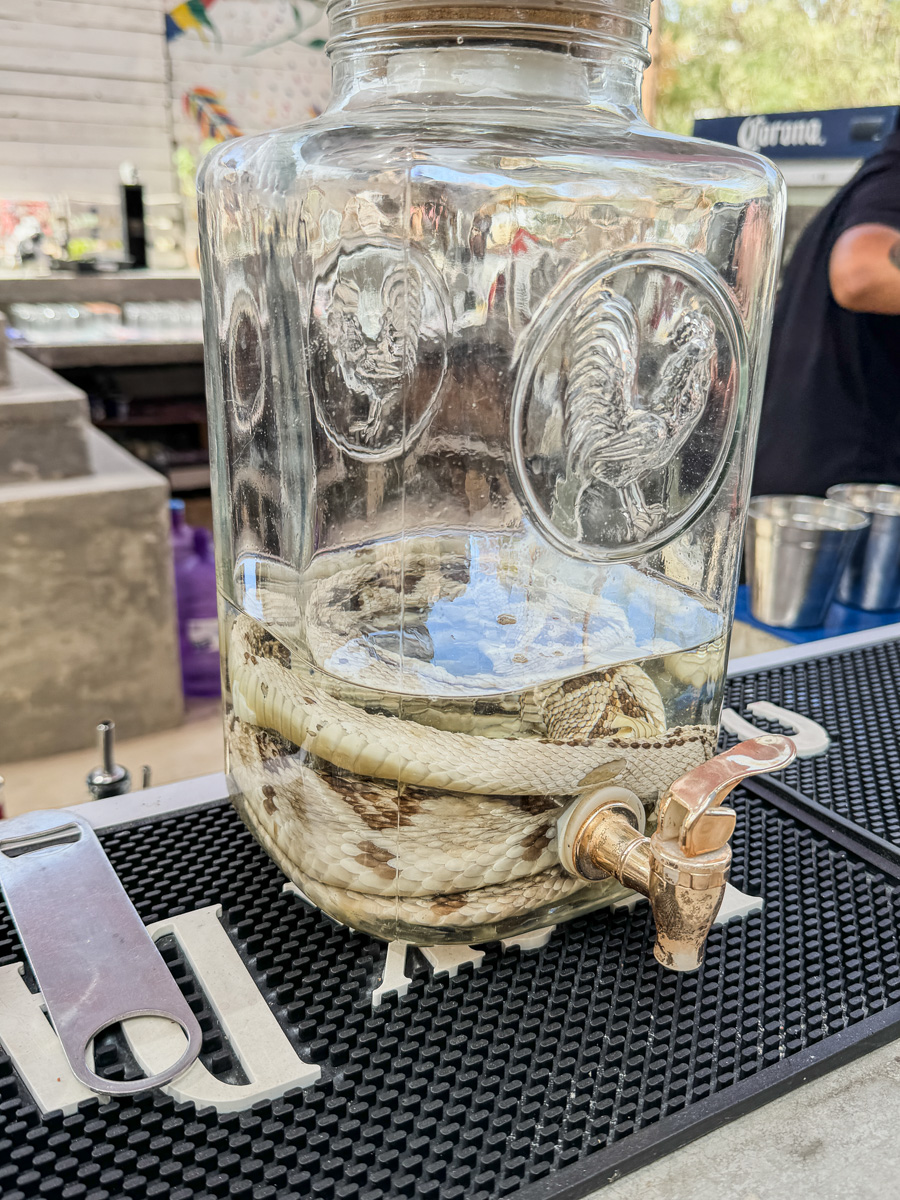
Looks yummy!
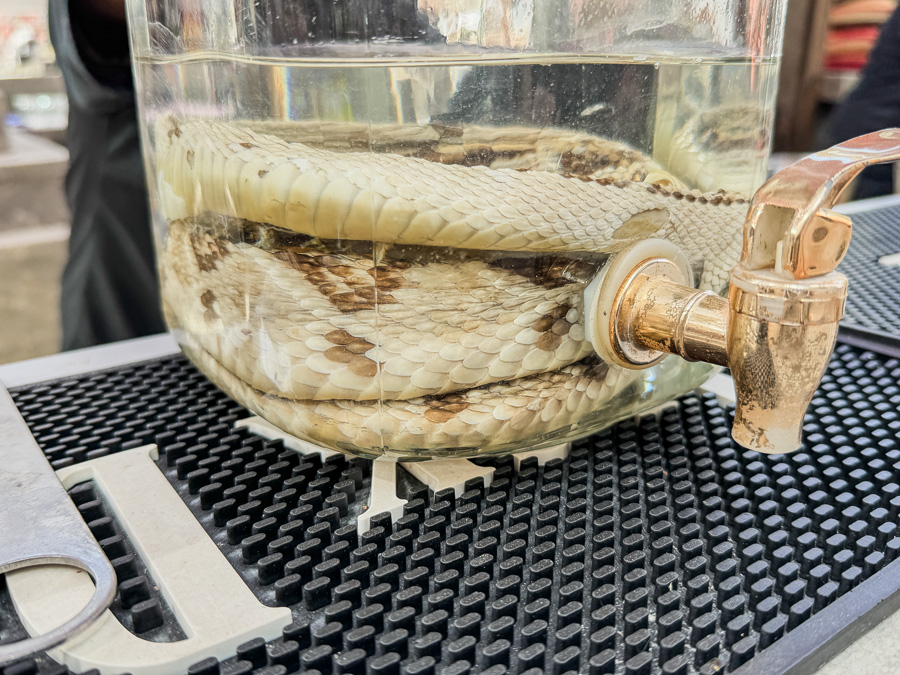
On second thought.....

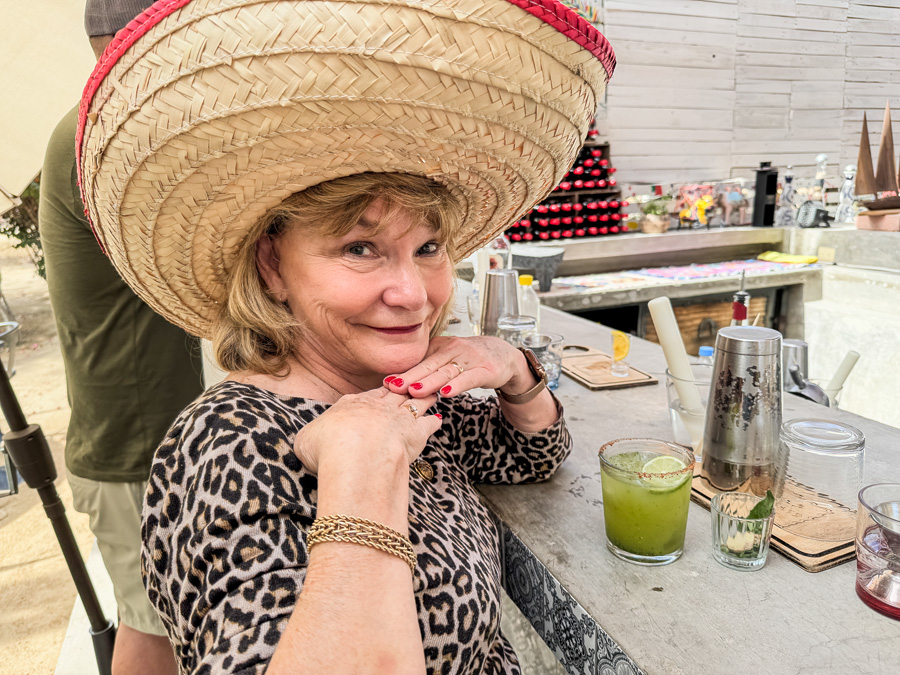
The Robin pose!
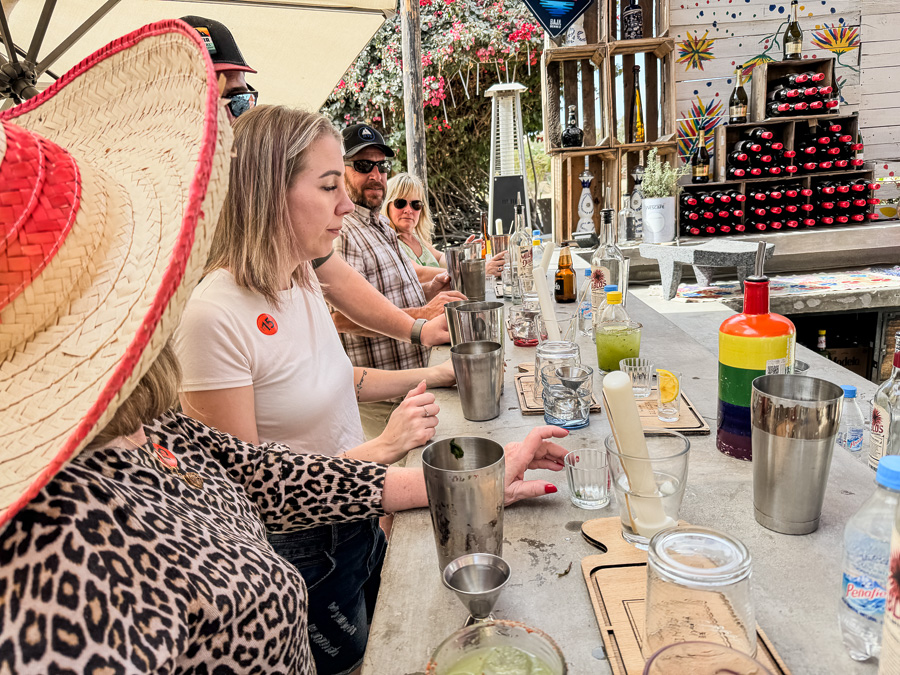
Looking our for snakes!
We stayed by the bar for a while, and everyone was looking at us after we downed the snake-laden Mezcal. Hissssssss! Rattle rattle! We both sounded like 1910 Chevrolets; we only needed an occasional backfire. That may have occurred, but we didn't tell anyone!

One trquila, two tequila, three teqila floor!
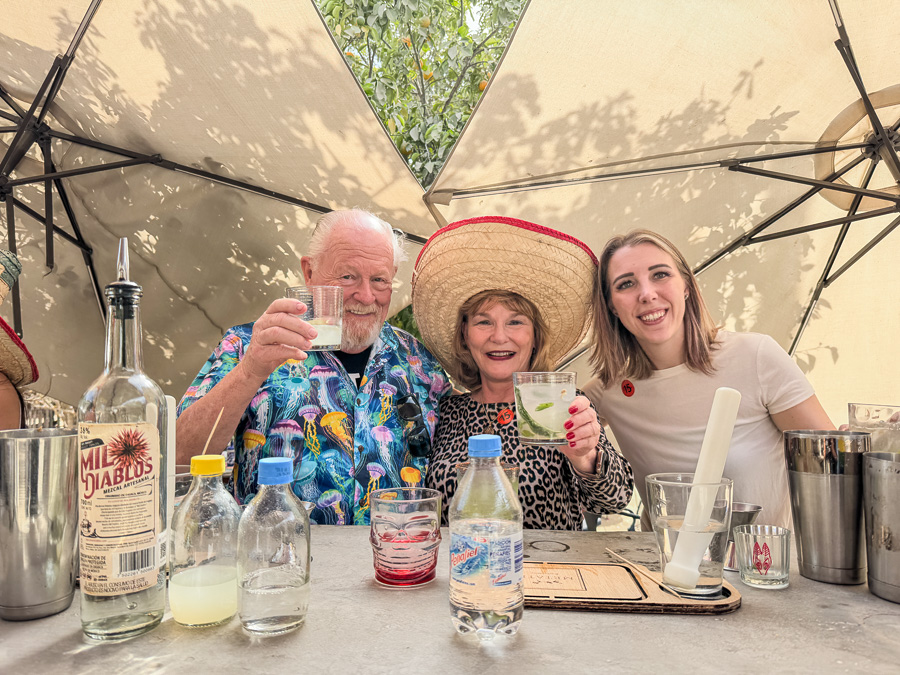
Here's to ya!

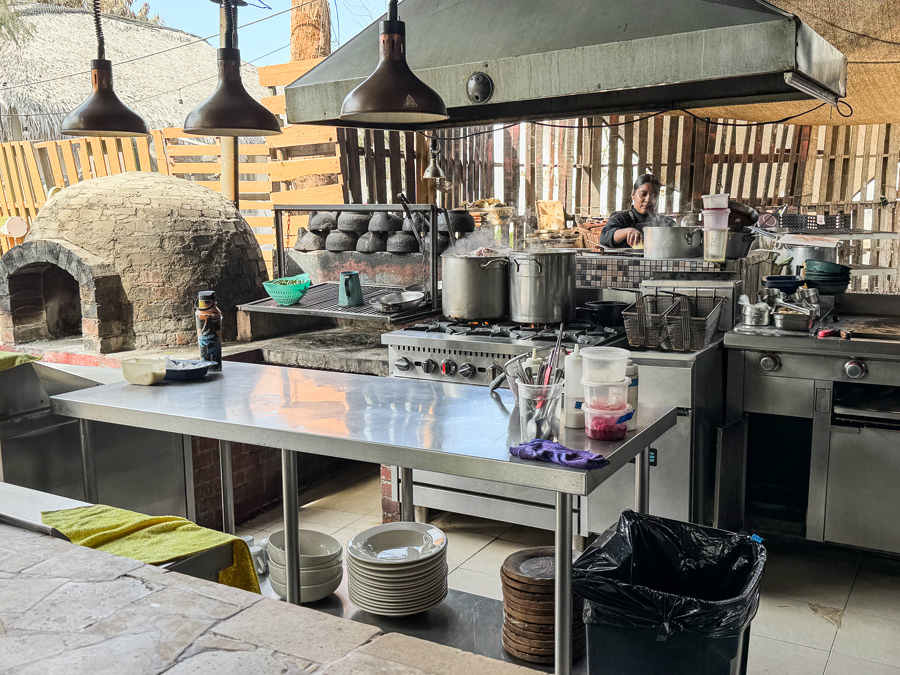
The kitchen was busy!
Back to our table! It was perfect, as we could see everything going on. We had Ceviche first, and we sent Vicky a picture. Ceviche is a lean, healthy dish, high in protein and low in fat. Fresh fish provides omega-3 fatty acids, which are beneficial for heart health. Due to all the veggies featured, you'll also find a fair share of vitamins, minerals, and antioxidants.
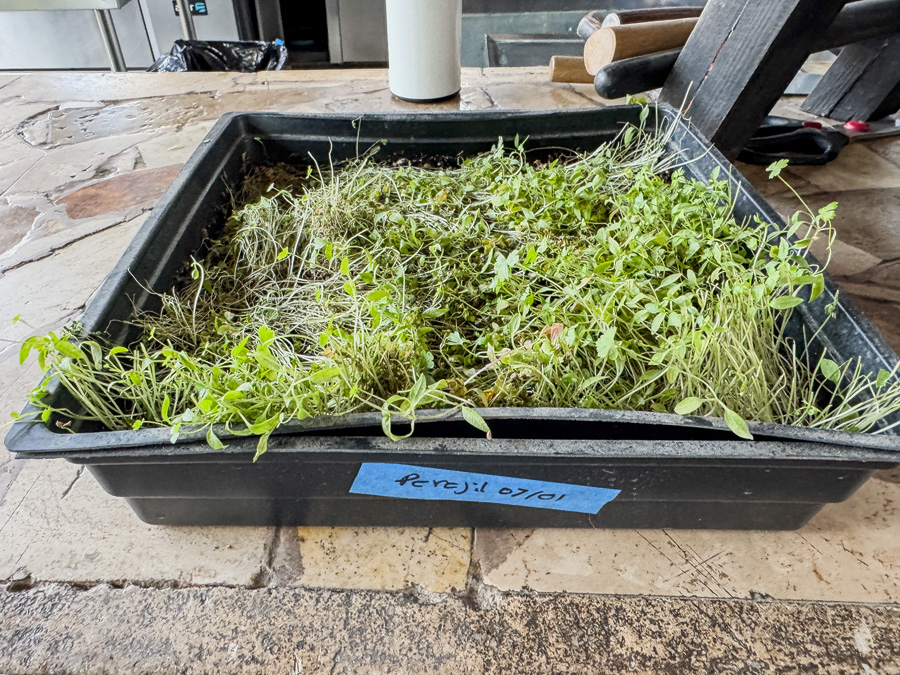
Cannot be freshers than this!
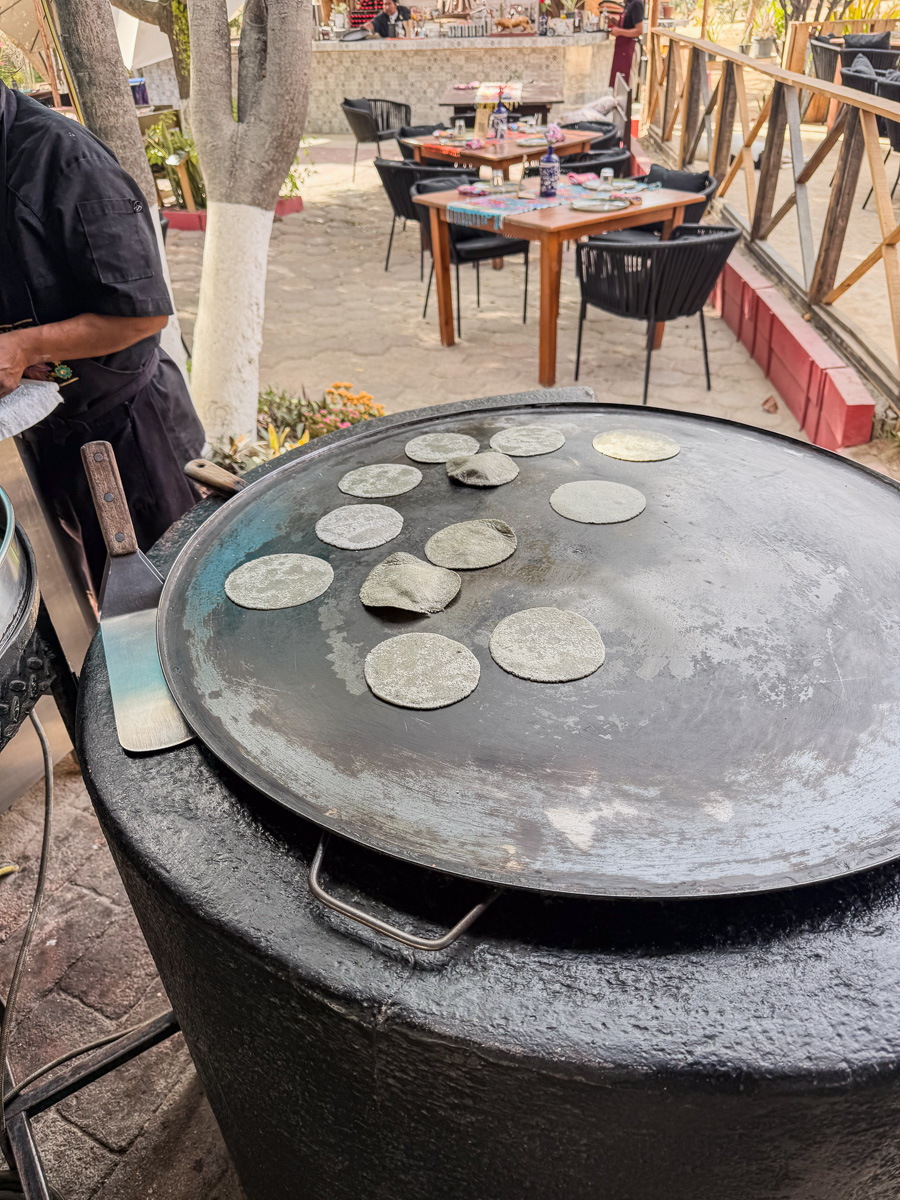
Tortillas were fly on and off the griddle quickly!
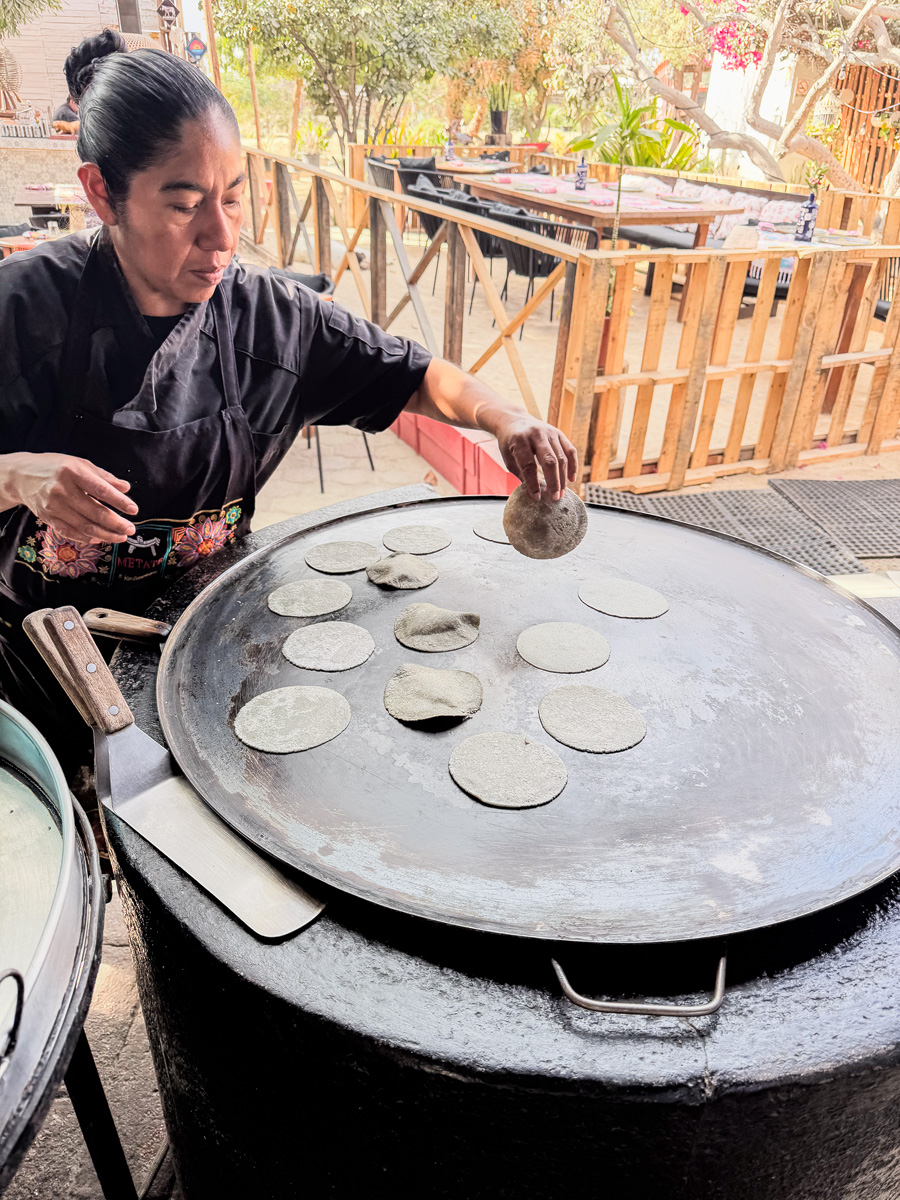
She was an artist!
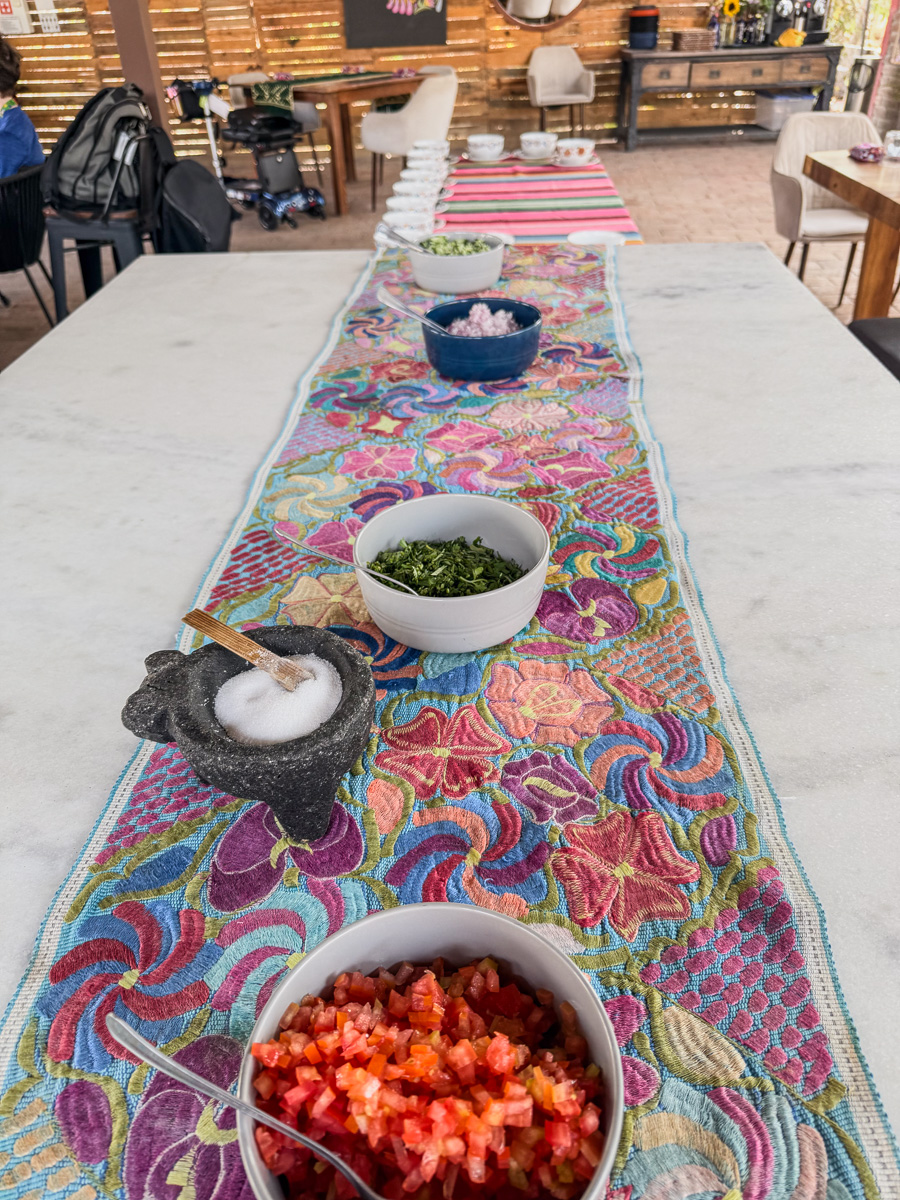
The table is ready!

We got a lesson in rolling corn, and Mary got into the mood. Corn was flying in every direction! I knew she was a bit corny!
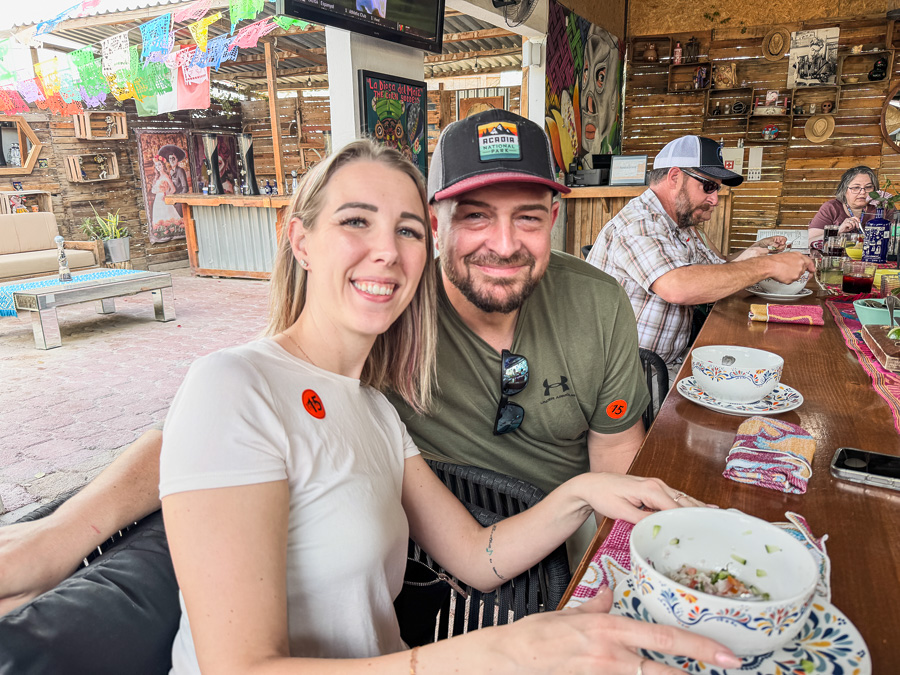
The cedrviche was excellent!
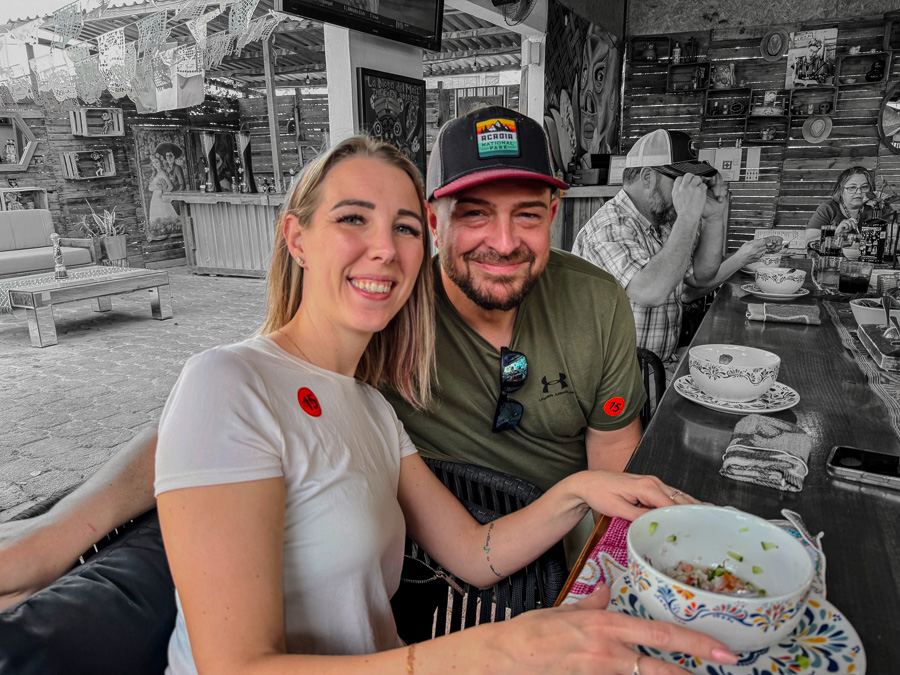
A colorful experience!
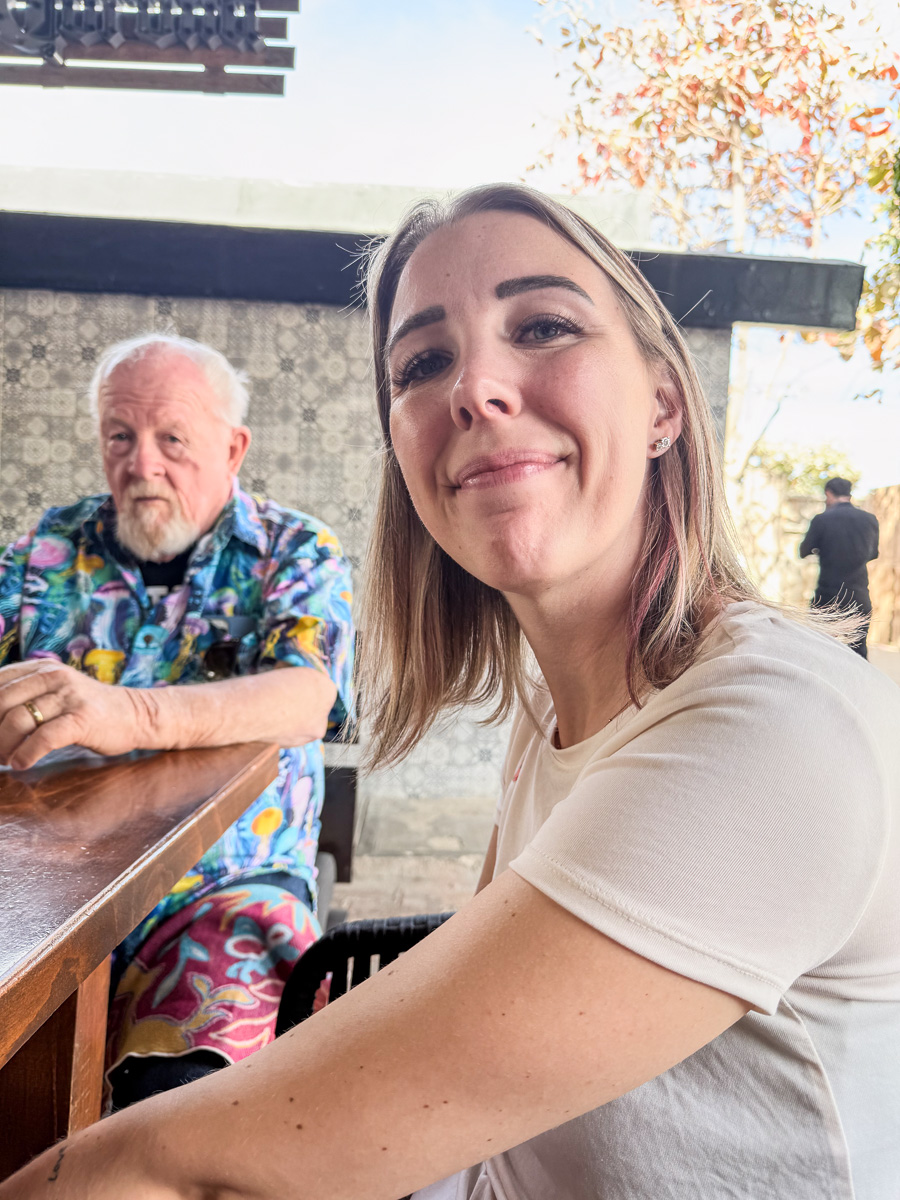
Just ask me!
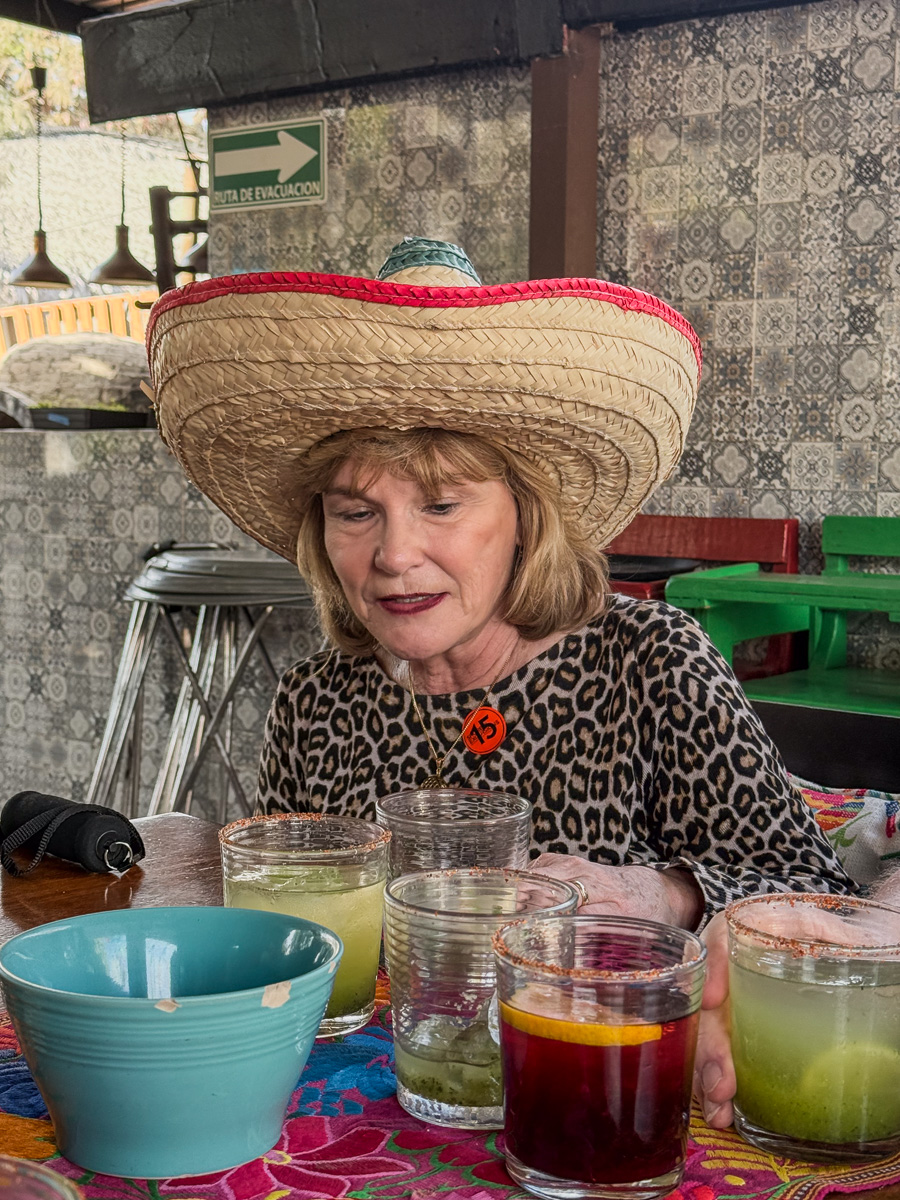
Someone likes her marguiritas!

While most families in Mexico have modern kitchen appliances such as food processors and blenders, there are still a few ancient, yet essential tools that are must-haves! These are tools that have been used for generations to master certain techniques, many of which were developed by the ancient indigenous civilizations in what is now Mexico.
One of these ancient indigenous tools is the metate. In some circles the metate is referred to as the "liquadora Azteca" or the "Aztec blender". It is a slightly sloped (but mostly flat) grinding slap with a rectangular shape that is made from basalt stone. The metate is used with a mano, a kind of pestle, to grind cooked corn kernels into masa, which is the dough that is used to make corn tortillas.
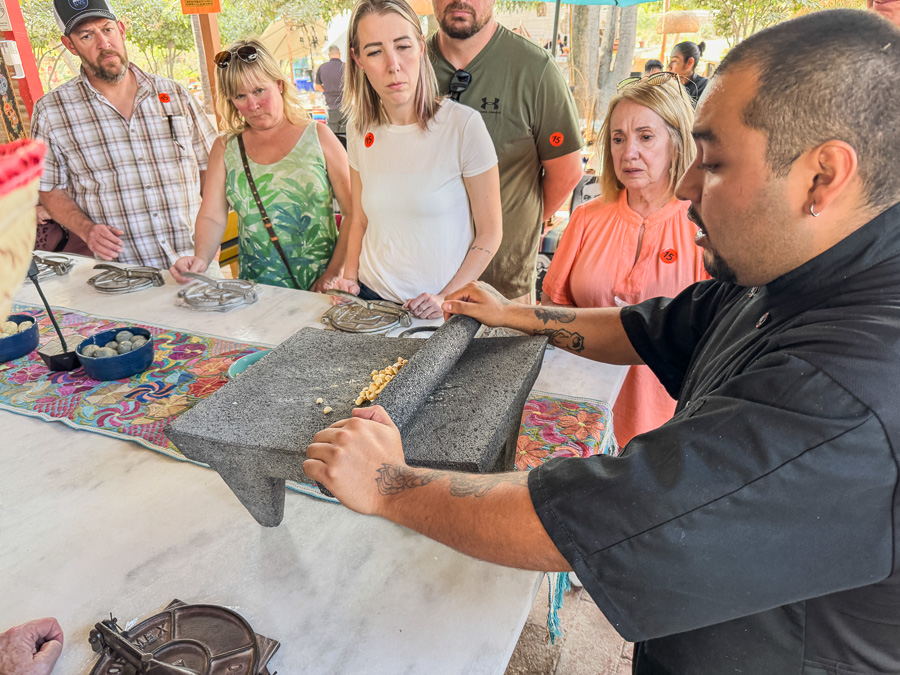
An expert teaches us!
Did You Know? - A metate (or mealing stone) is a type or variety of quern, a ground stone tool used for processing grain and seeds. In traditional Mesoamerican cultures, women typically used metates to grind nixtamalized maize and other organic materials during food preparation (e.g., making tortillas).
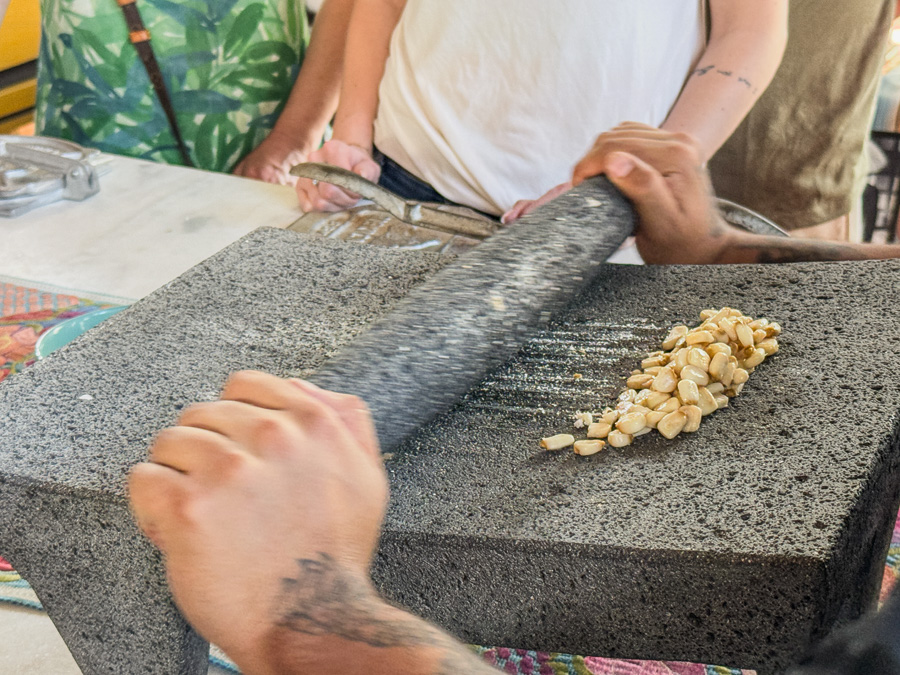
It takes time to master the required movements!
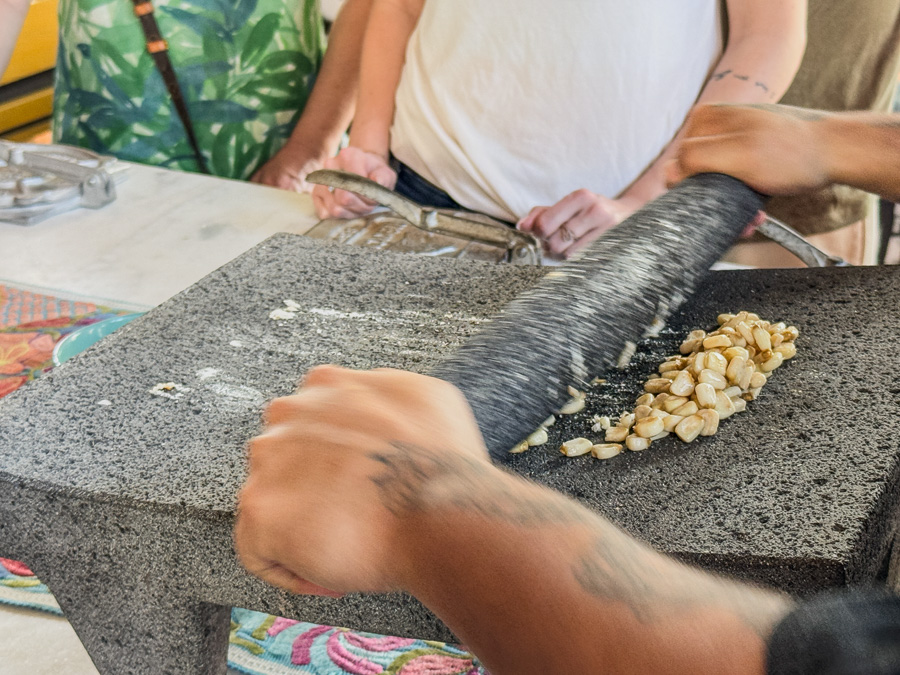
He was like a mahine!

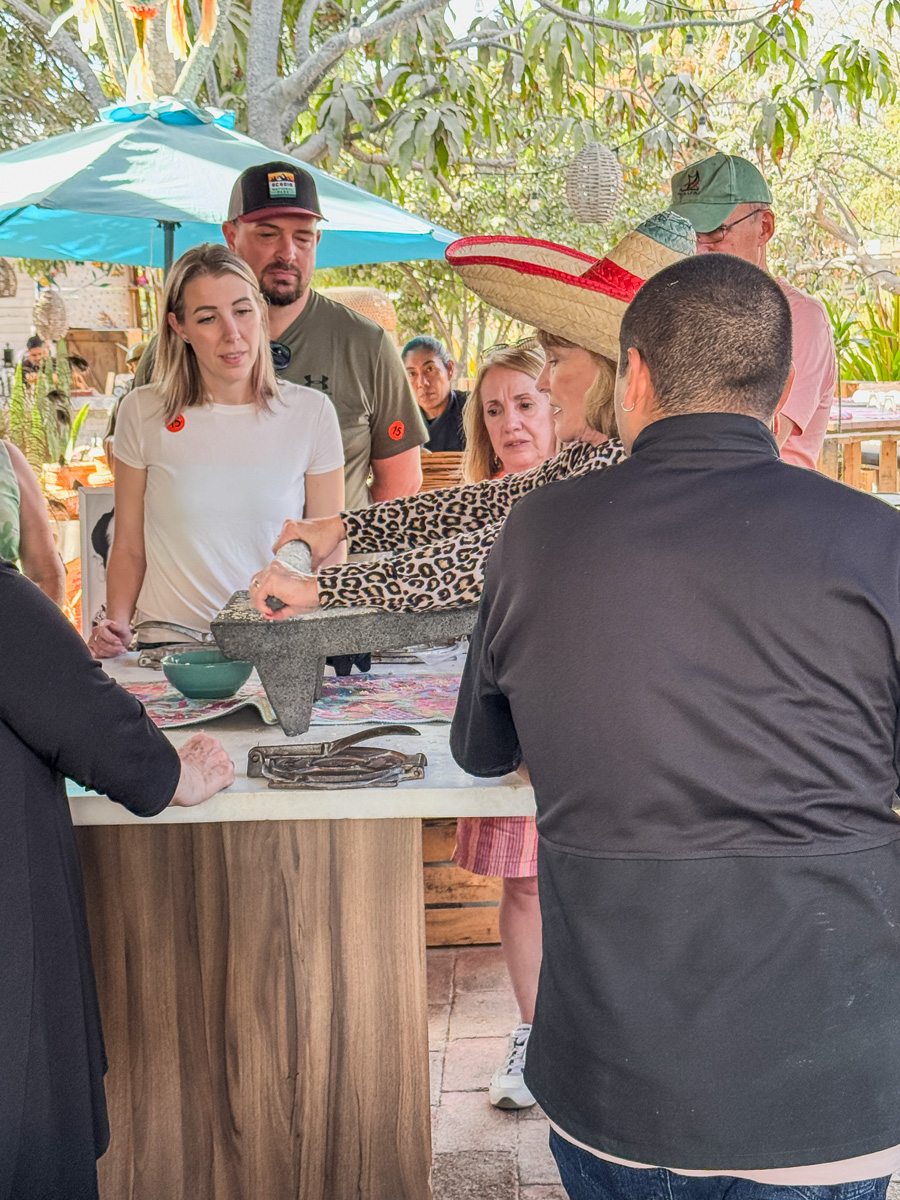
You go girl!
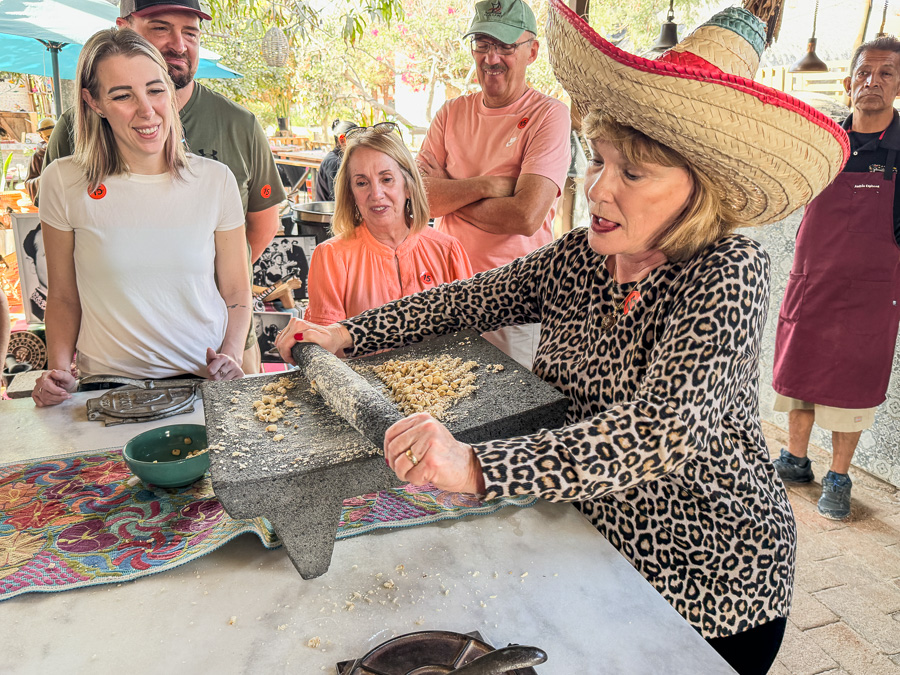
She sang in Spanish as she rolled!
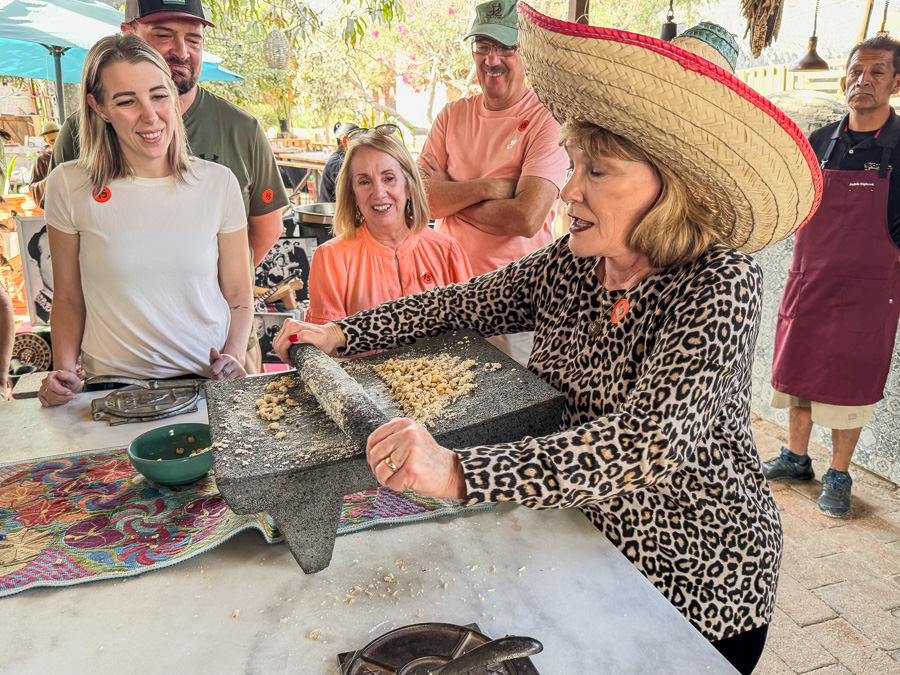
Plenty of tortillas tonight!
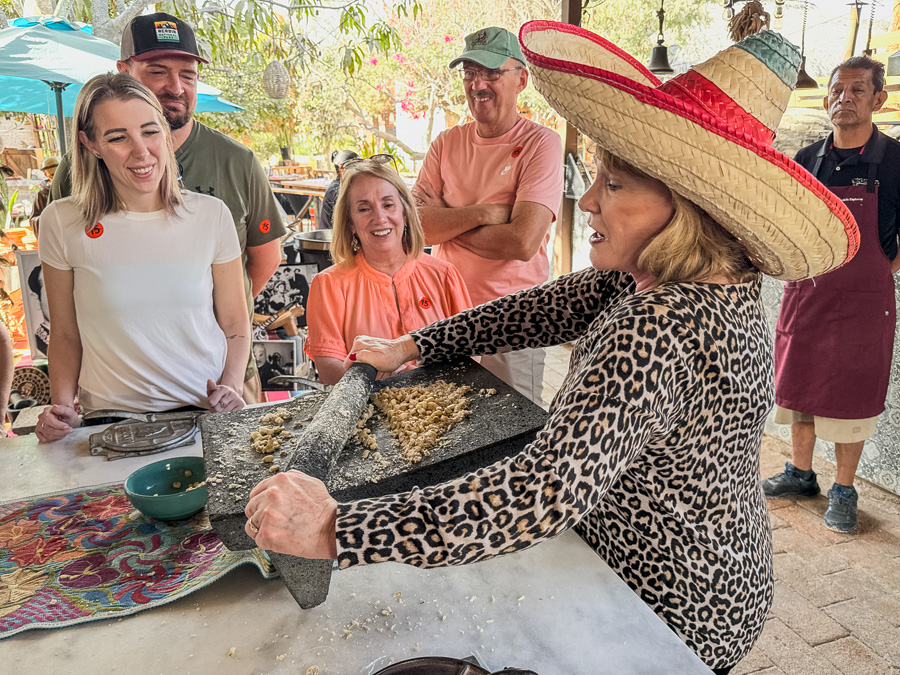
Dang; she has hidden talents
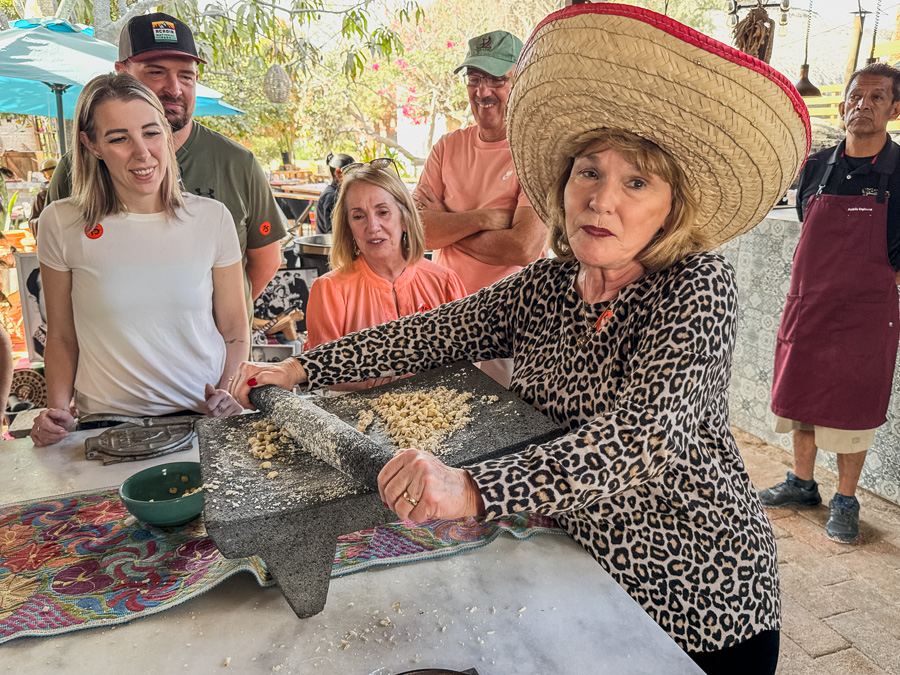
Don't ask, don't tell!
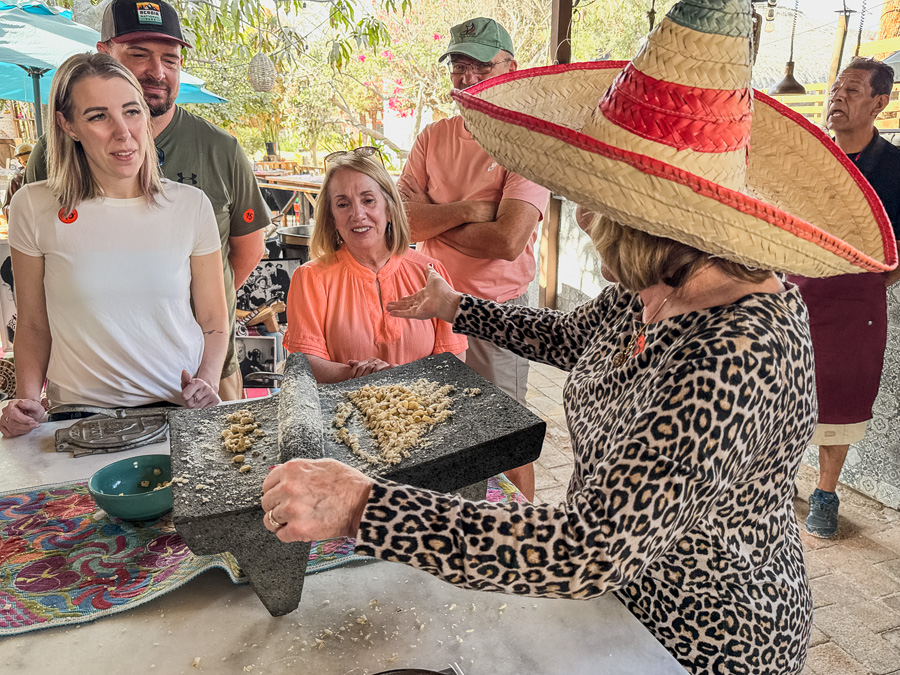
"Take over, I am pooped out!"

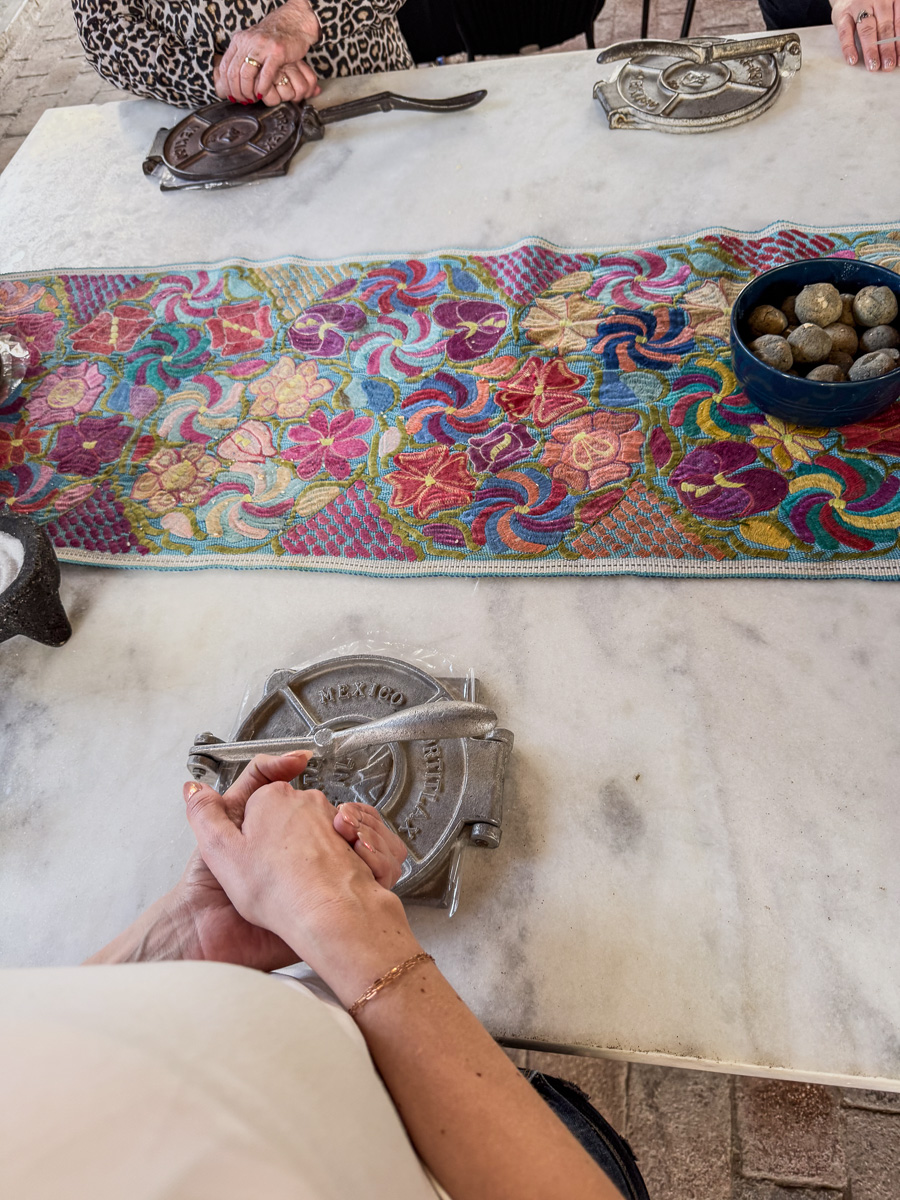
We did!
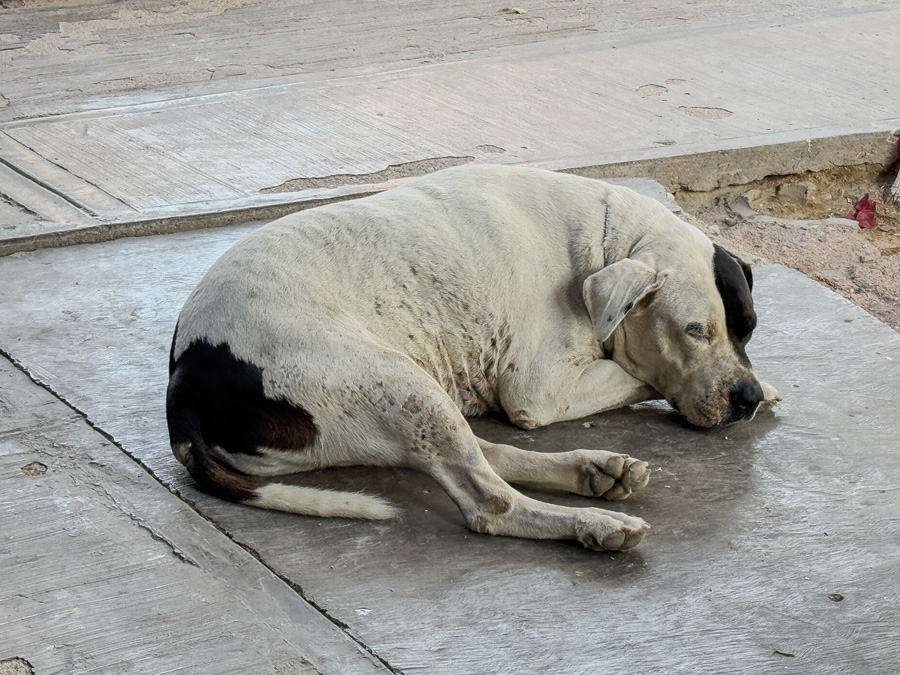
We were being supervised!
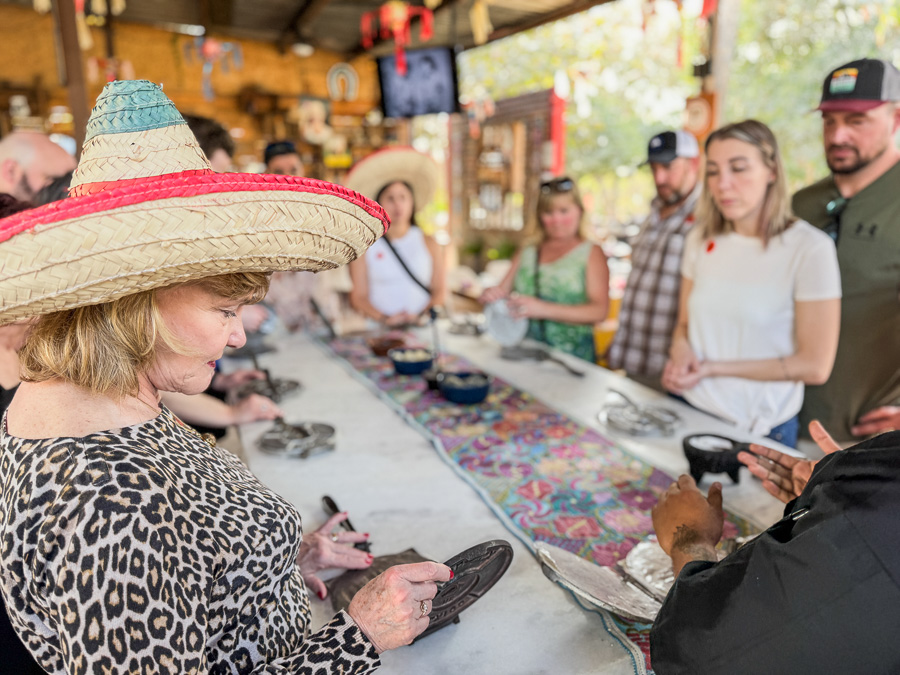
This was the easy part
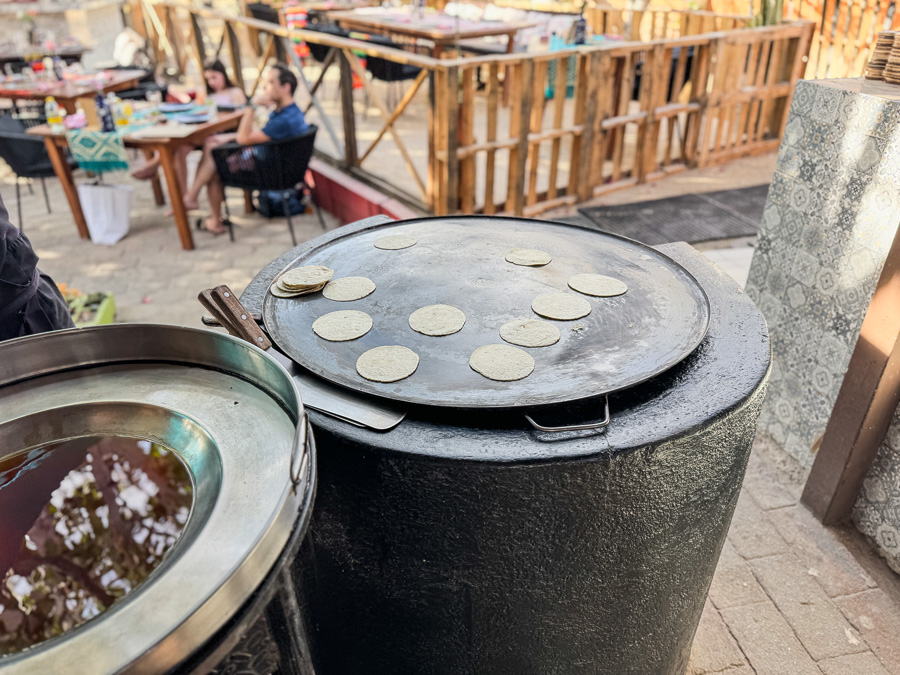
Now we heat them up!
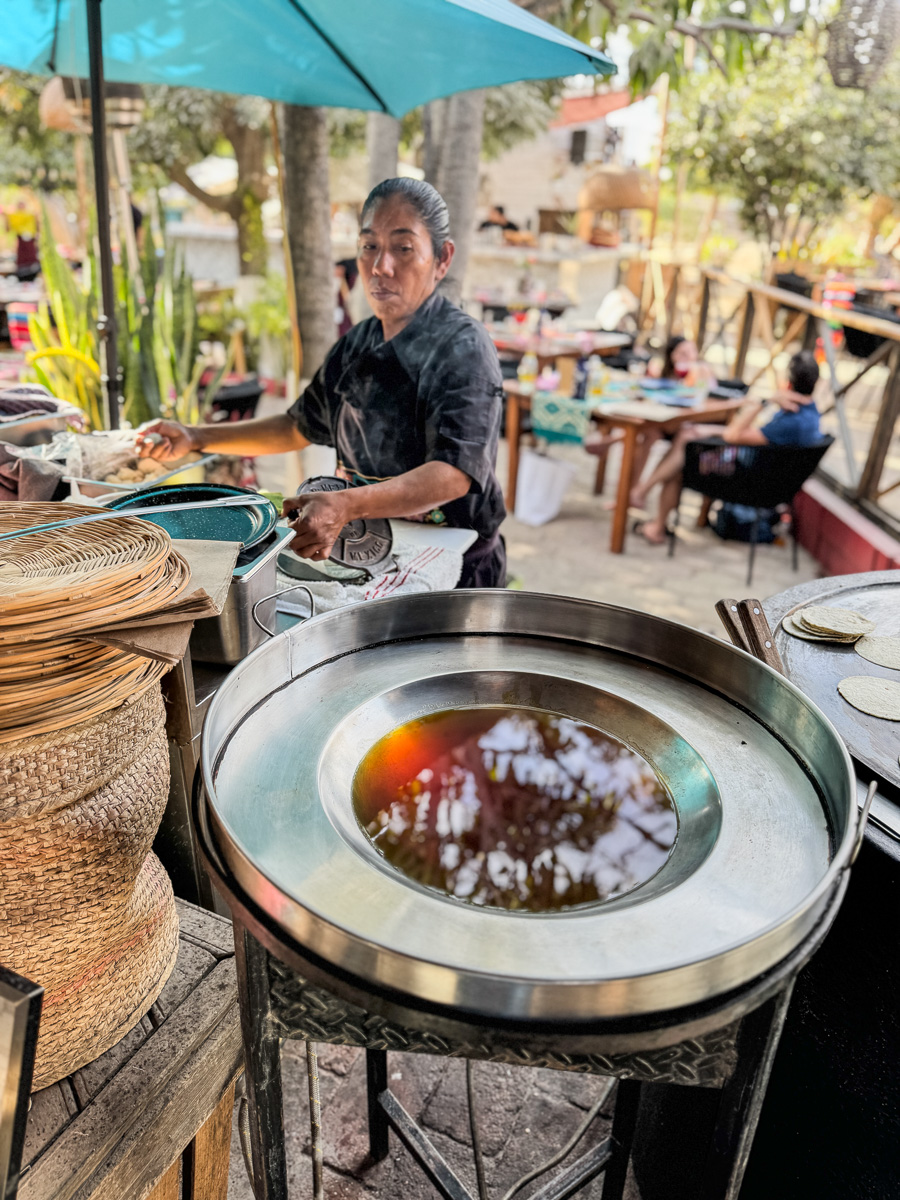
...and drop them in the oil!
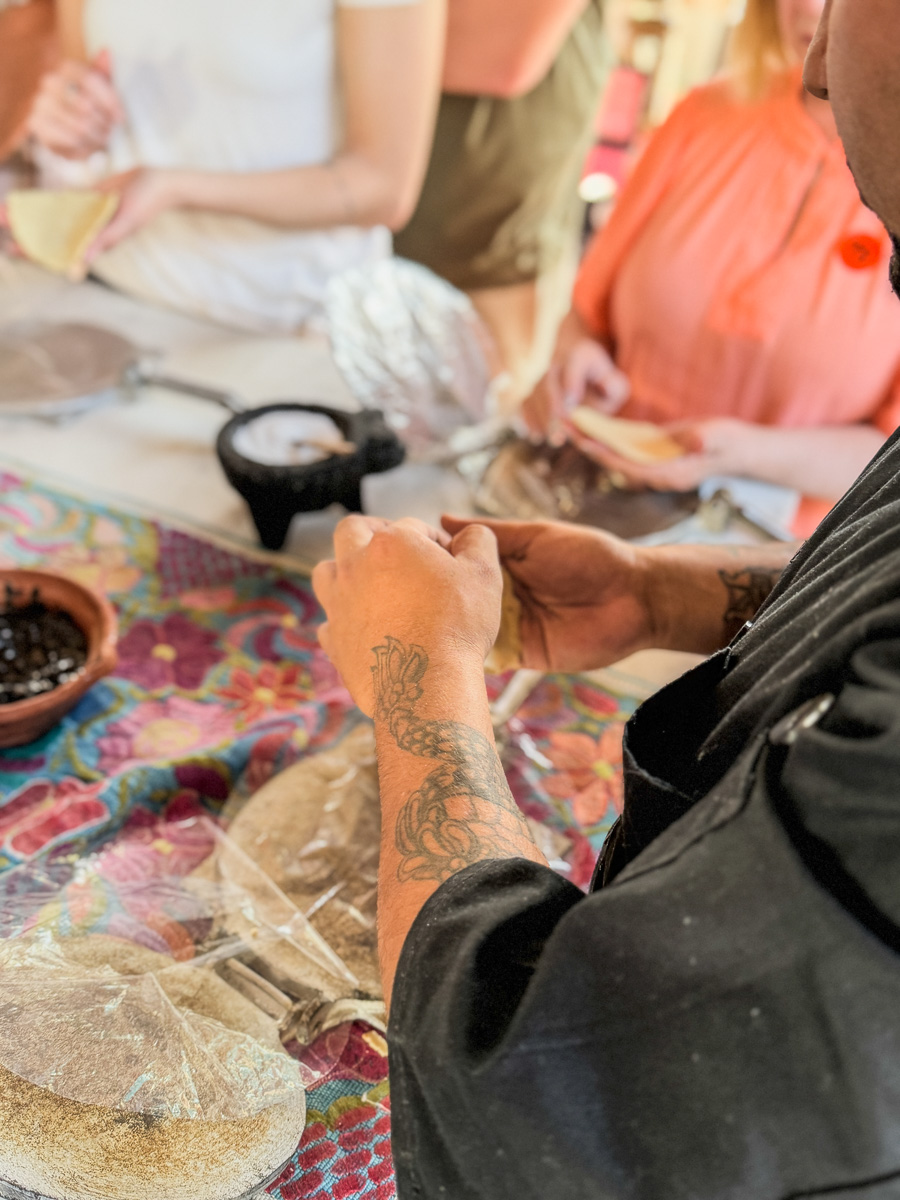
Making dumplings!
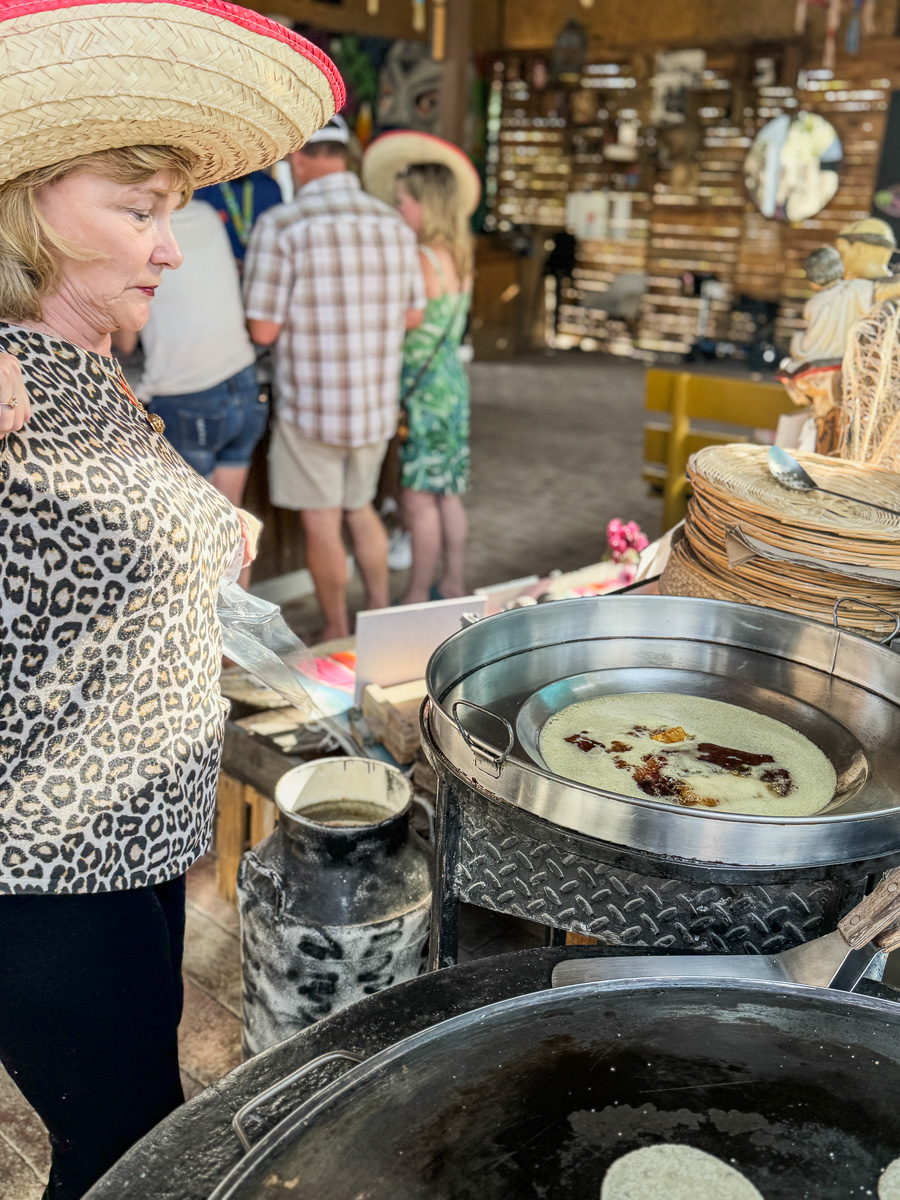
Mary examines the heating process!
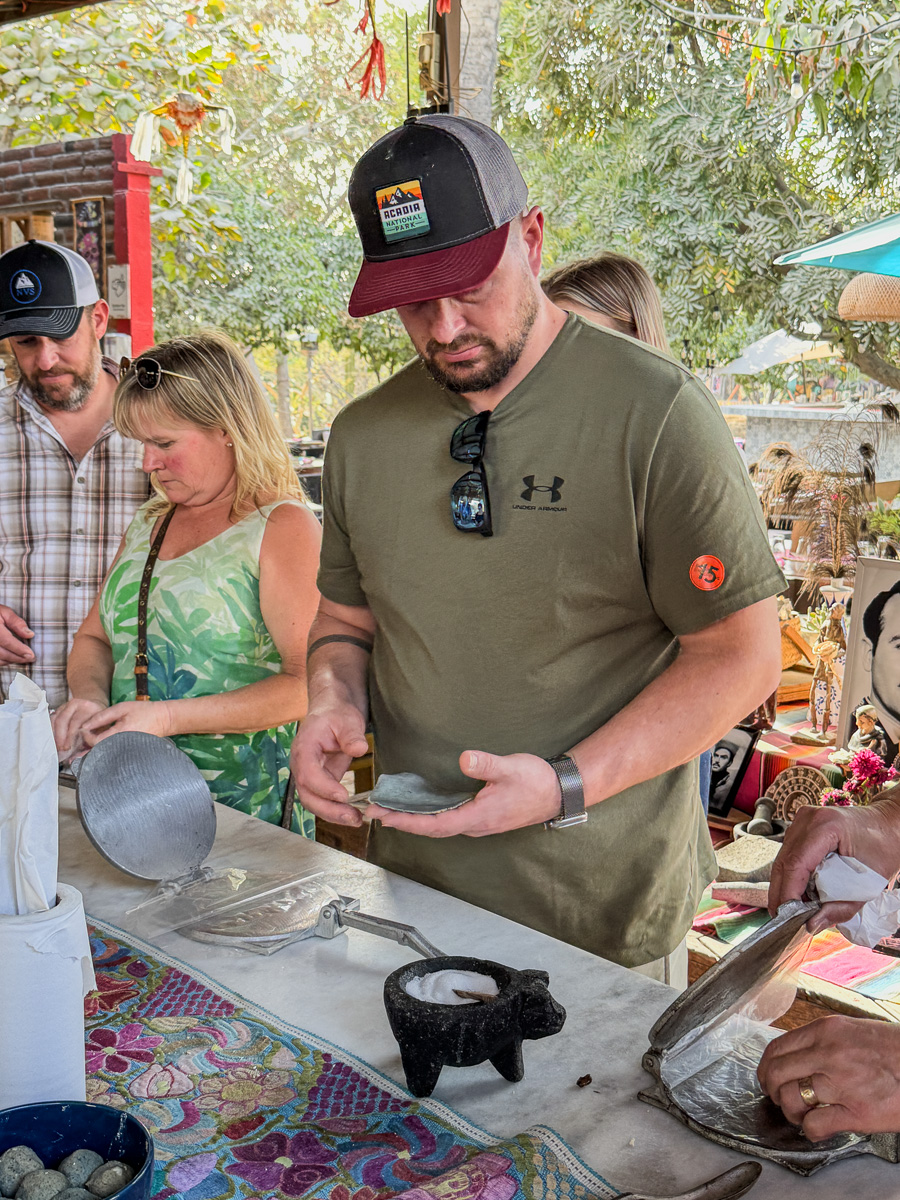
Too flat Jon!
We were served a pork leg, which was humungous. It tasted wonderful. Mary nibbled, and I had to eat the rest; I forced myself. Dang the luck!
We had flan for dessert. By the end of the day, we were stuffed and had dinner reservations at the Italian restaurant on board at 7:00 p.m. Oh my, I may have to wear a robe to dinner.

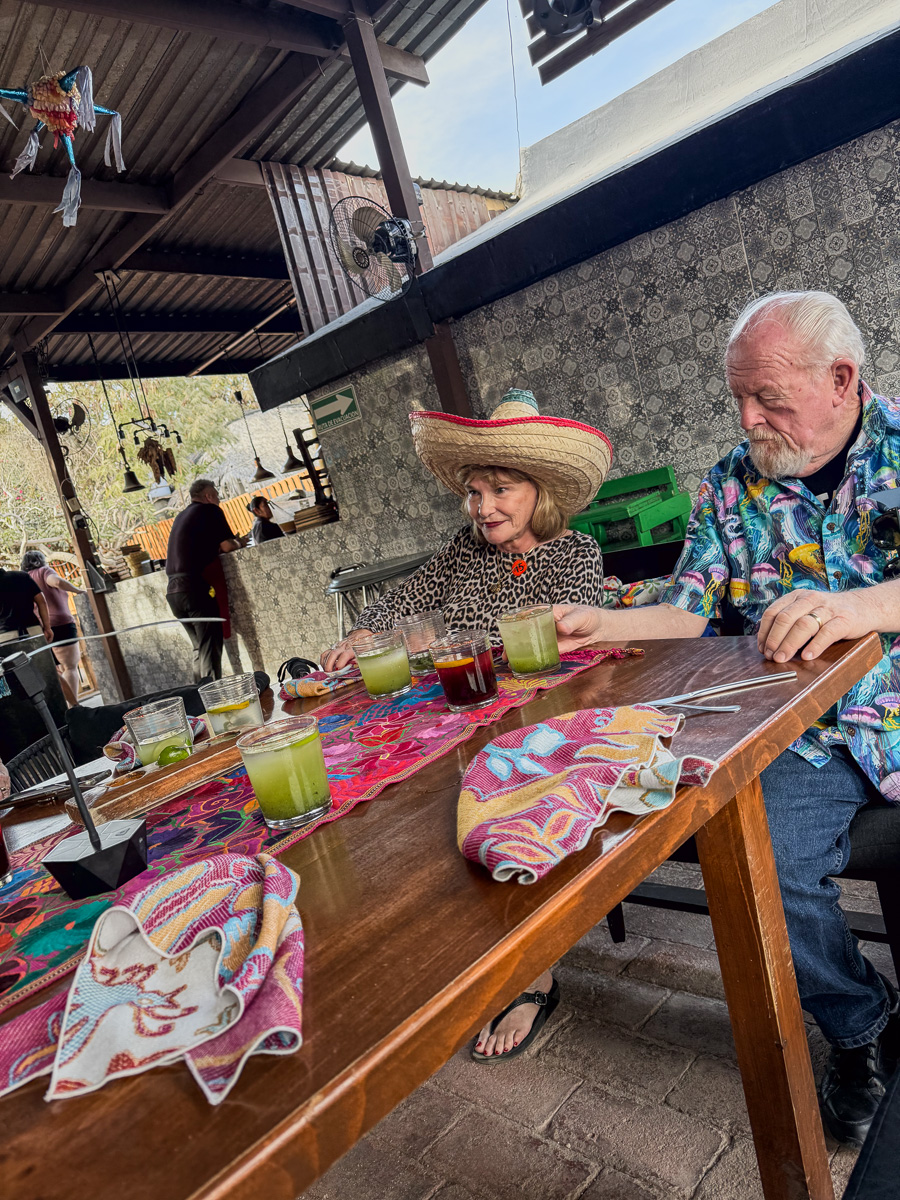
Downn the hatch!
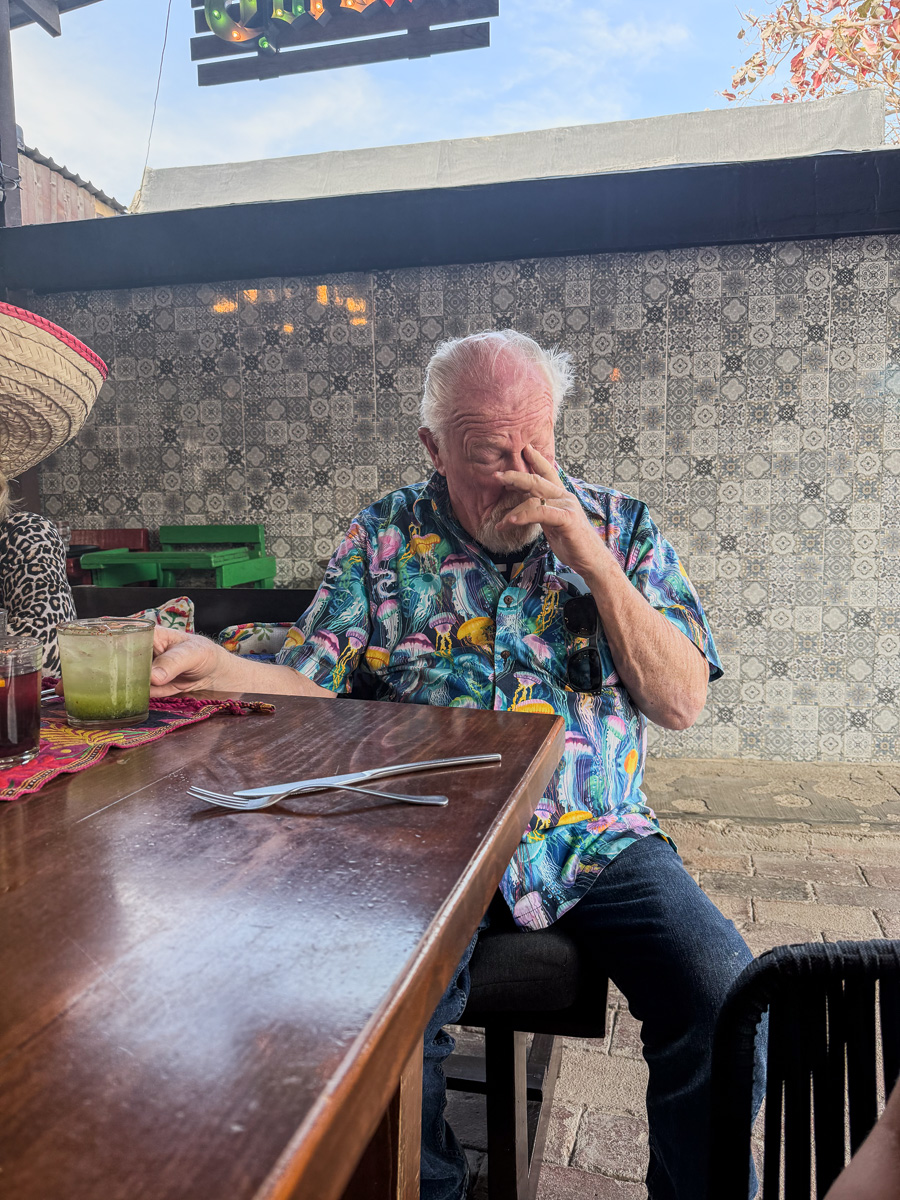
Oh my... the snake tequila hit Paul
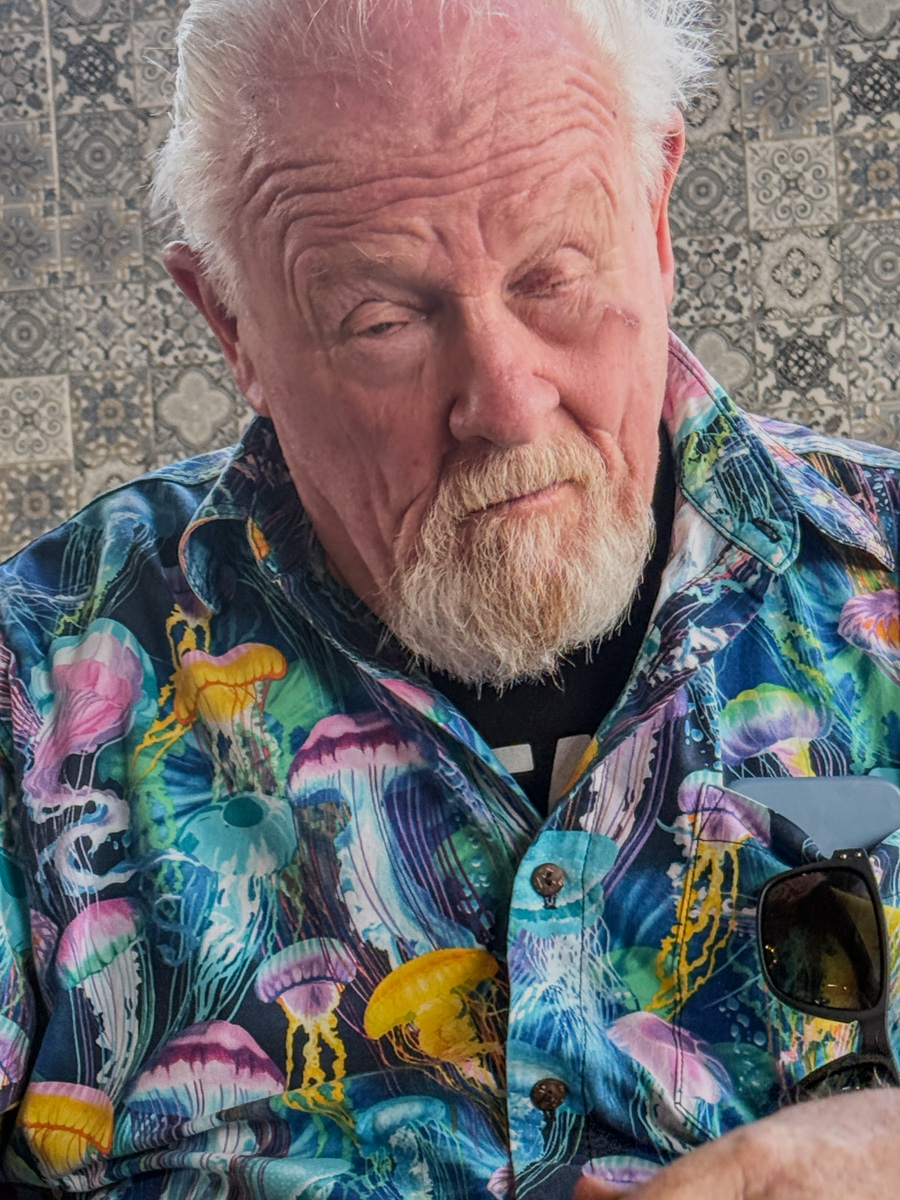
Nan... he looks perfectly normal
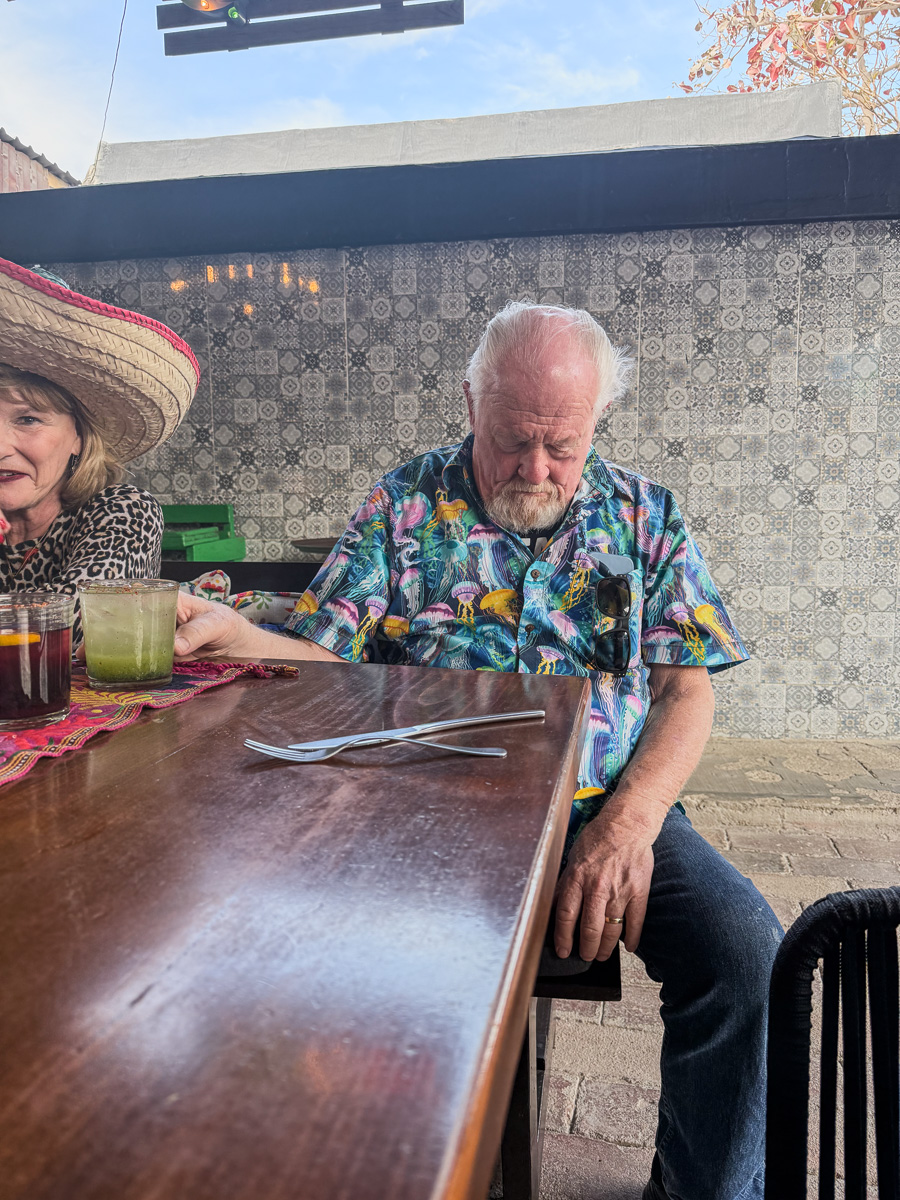
Z-z-z-z-z-z-z-z

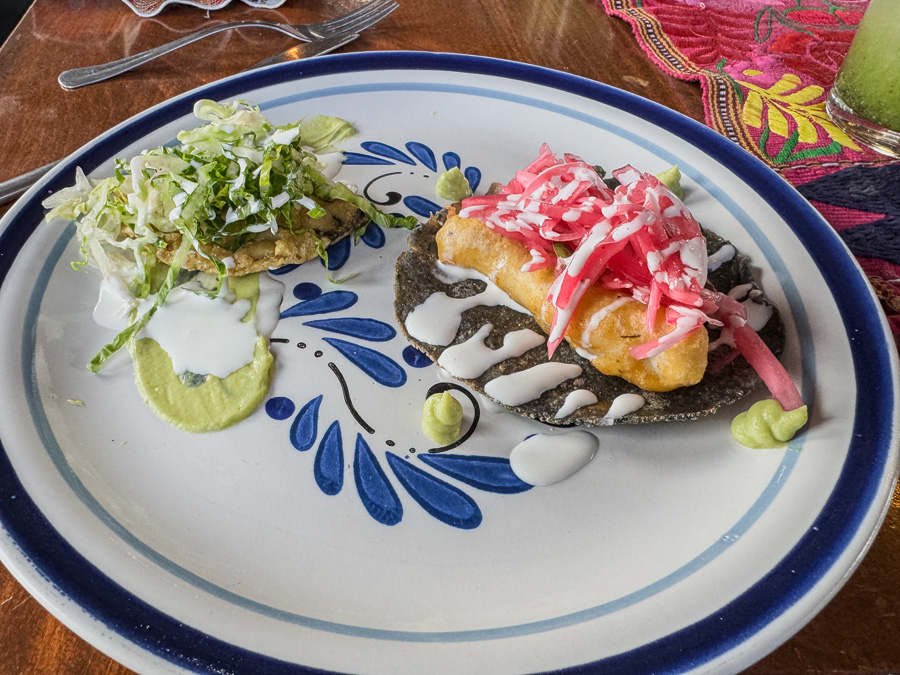
The plates and their contents were beautiful!
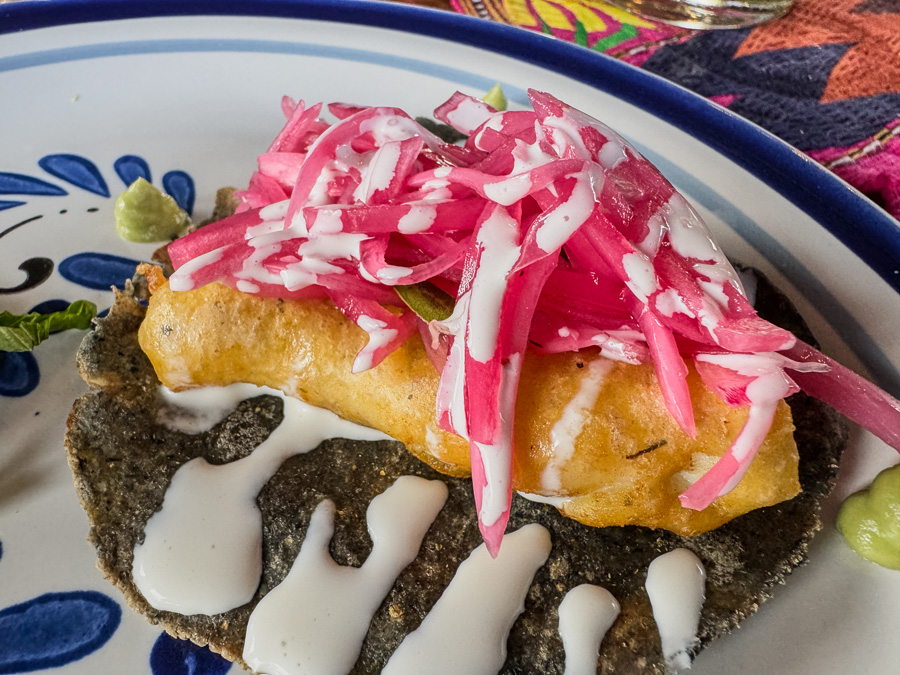
Artists at work!
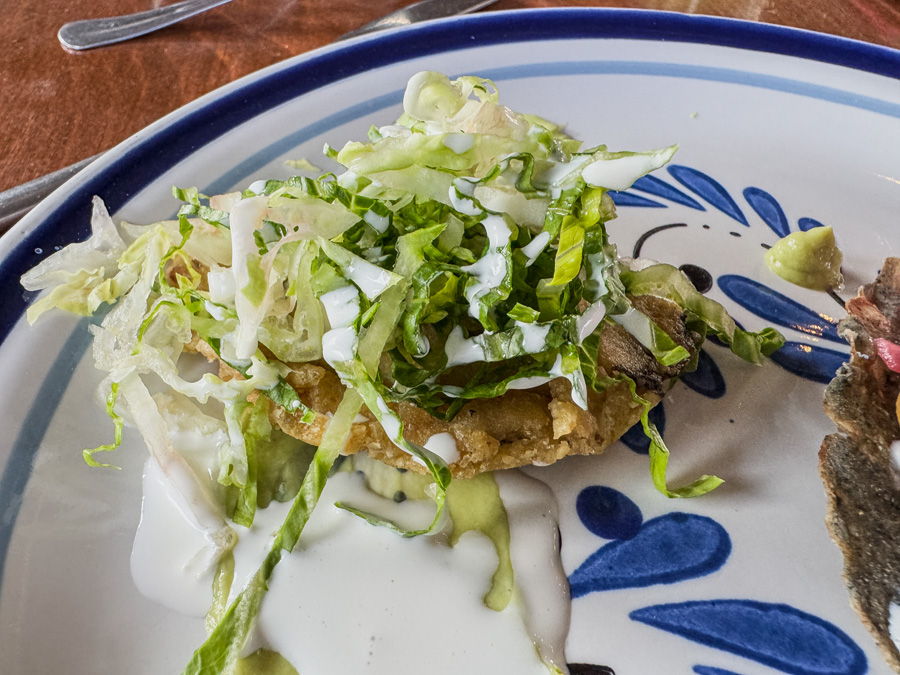
So fresh!
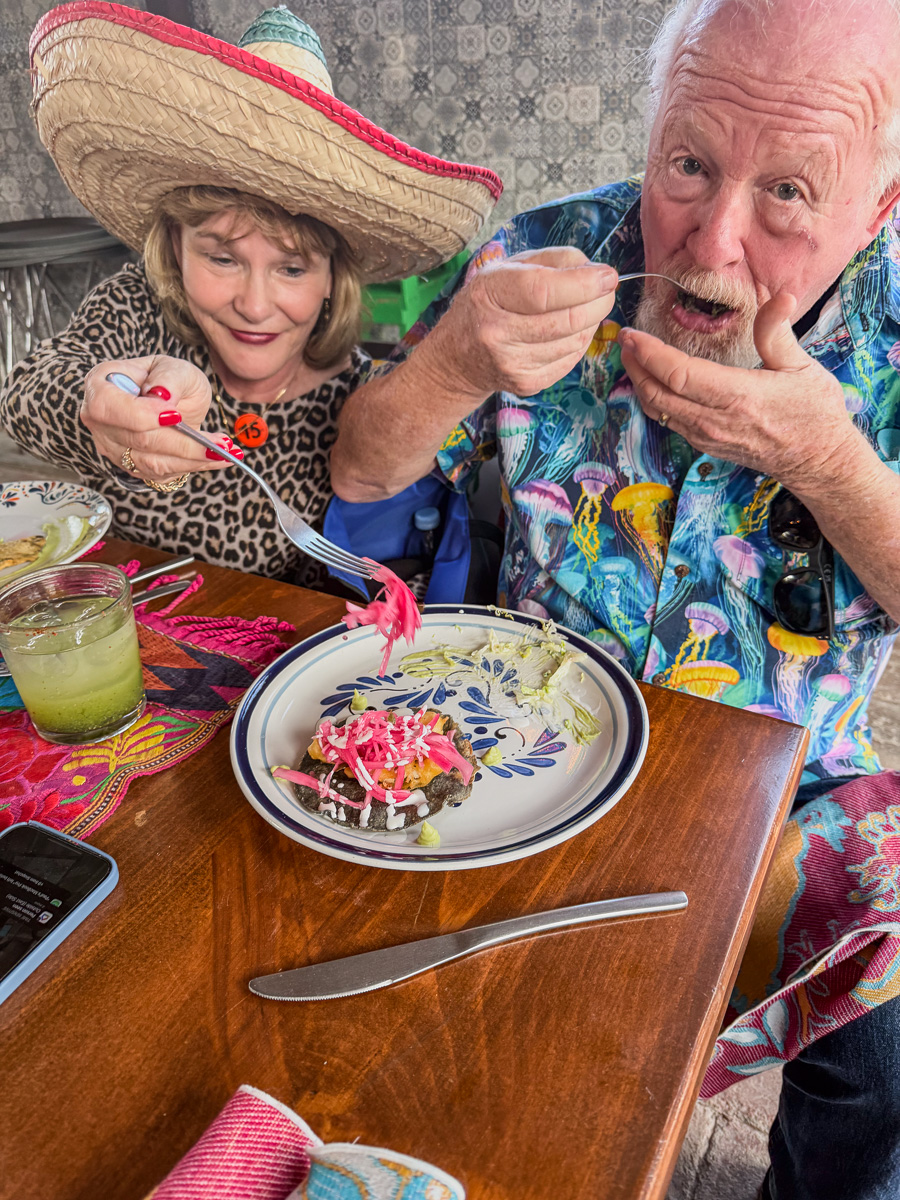
Paul got his second wind!

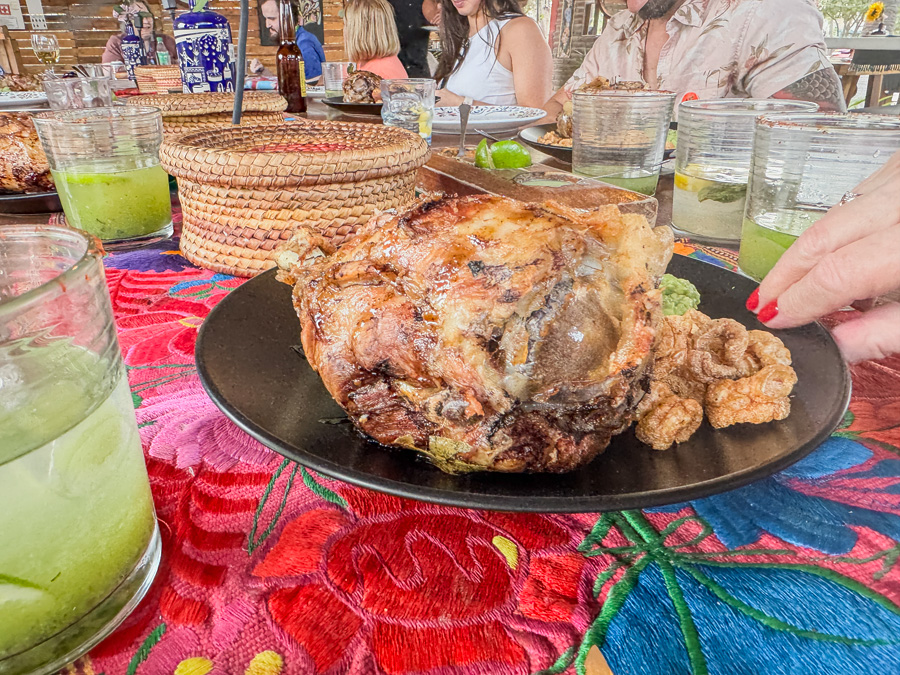
Are you sure it is not the entire pig???
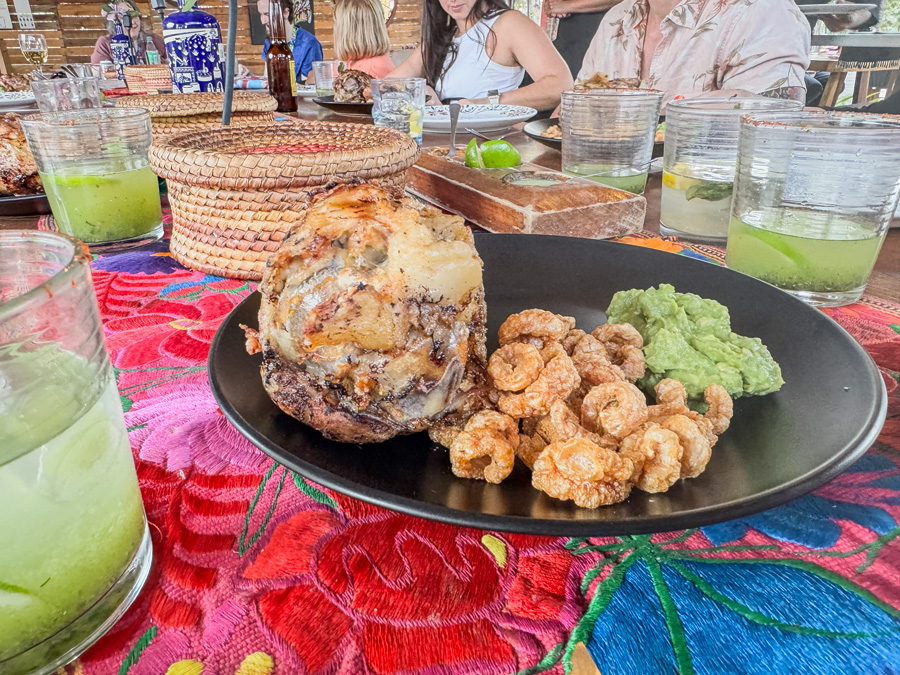
I managed to eat most of it!
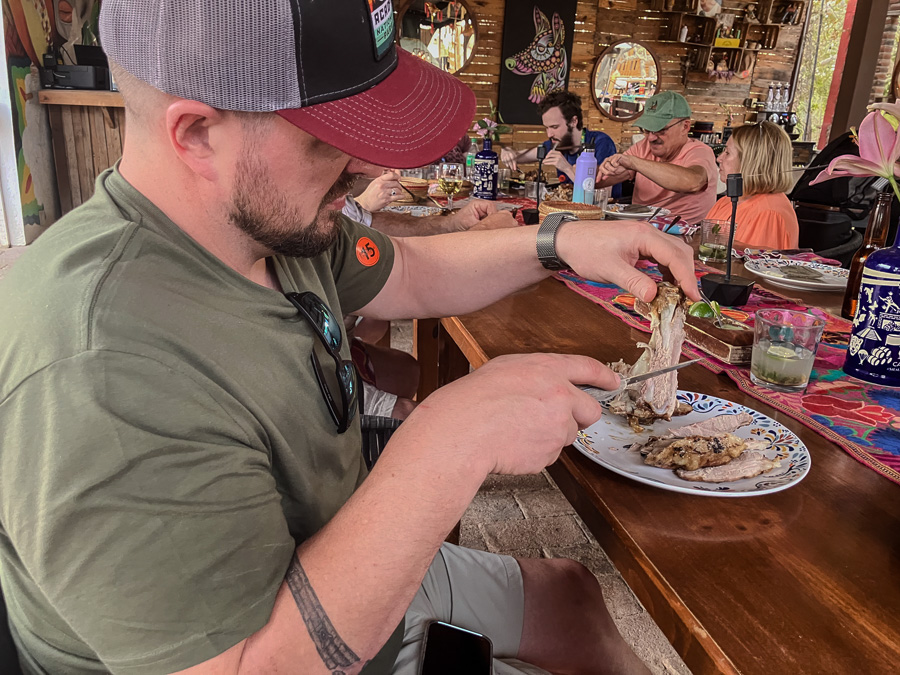
So did Jon!!

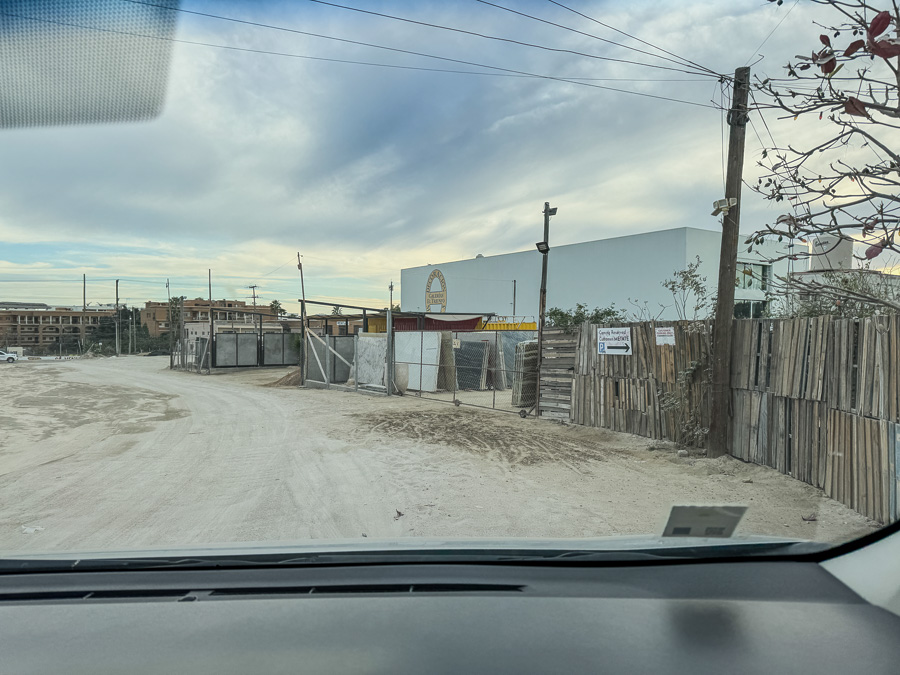
We took the scenic route!
The trip back to the pier was uneventful. We all went to the staterooms immediately and rested briefly before dinner. I could hardly wait to take off my girdle!
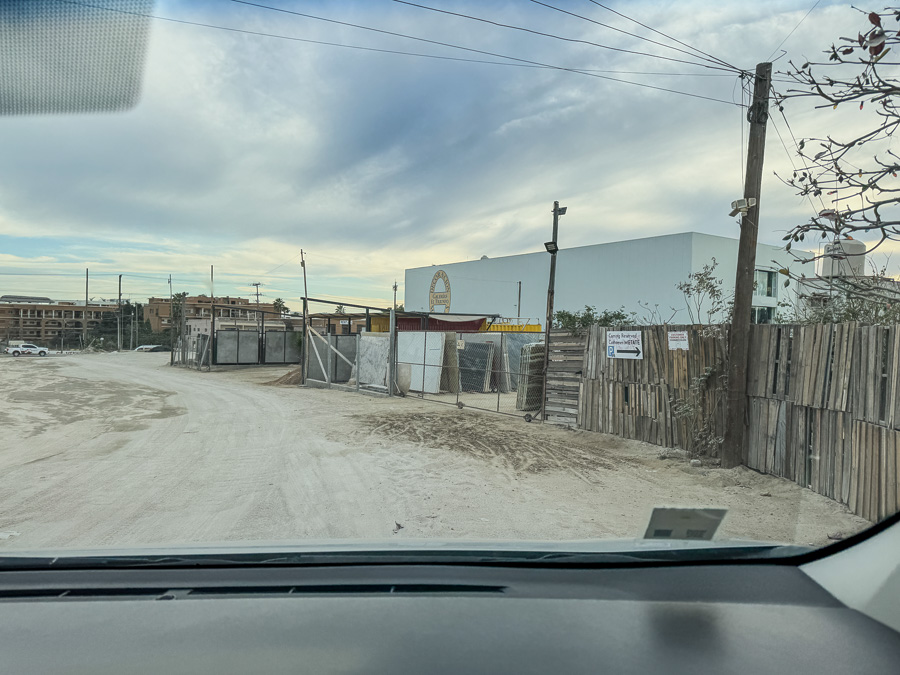
We made it back to the ship oin about 20 minutes!
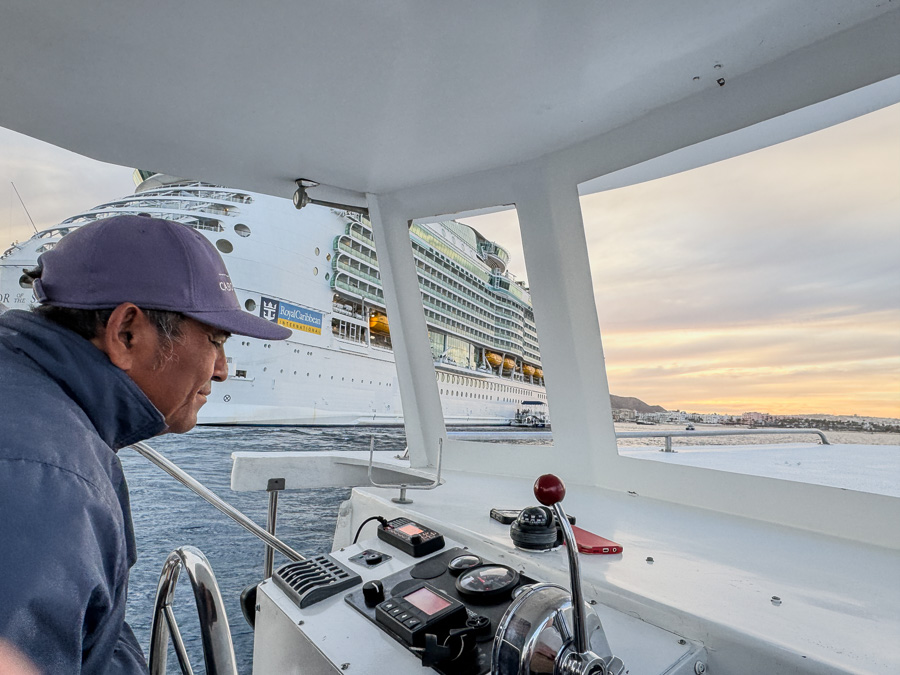
Here we come!
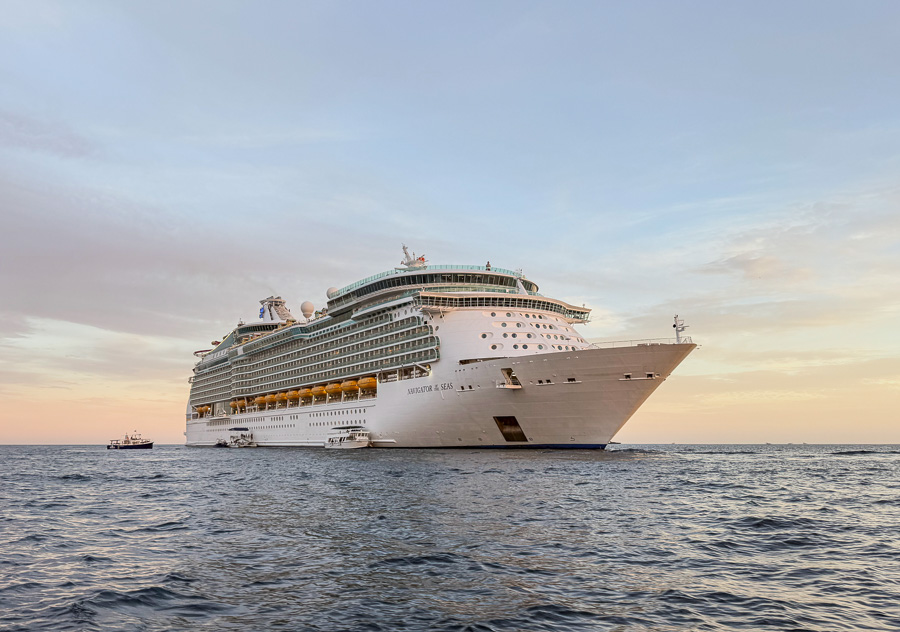
She look great!

The small hills surrounding the city were backlit by the dropping Sun. Although the temperature dropped a few degrees, it was still pleasant to be outside.
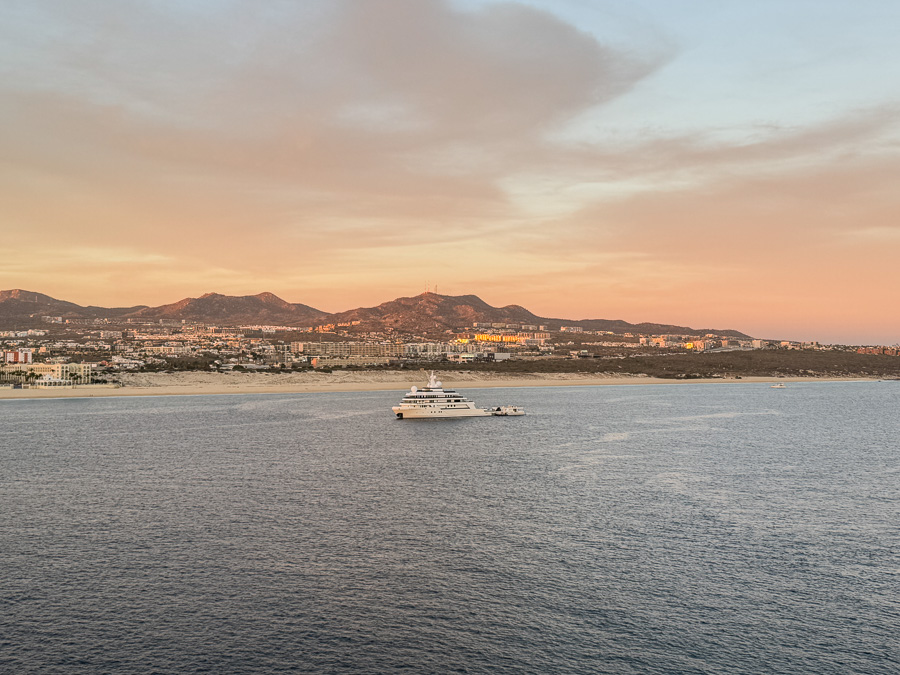
We are on our way to the next stop!
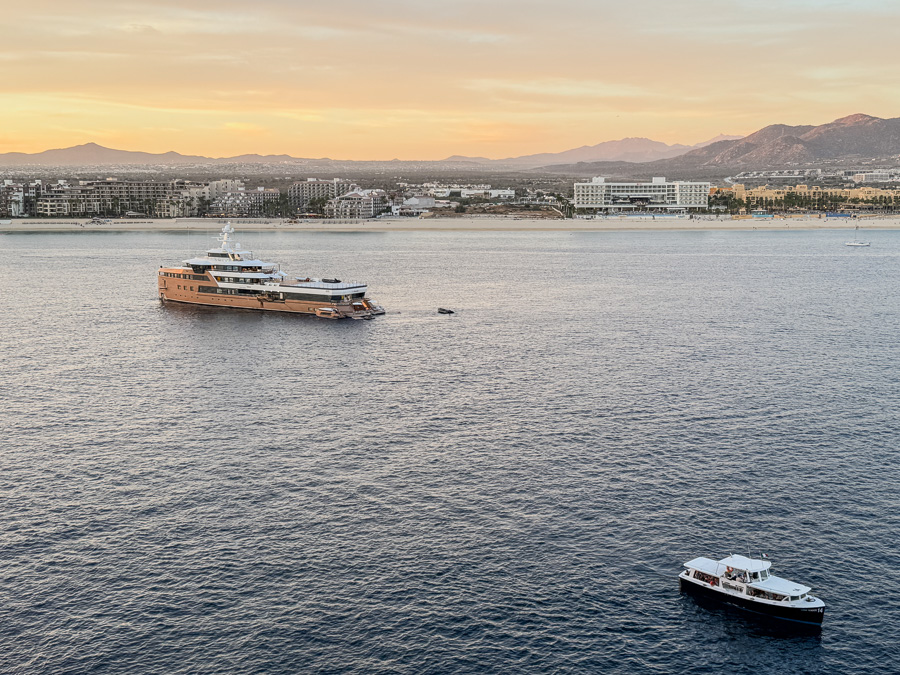
The last tender arrives!

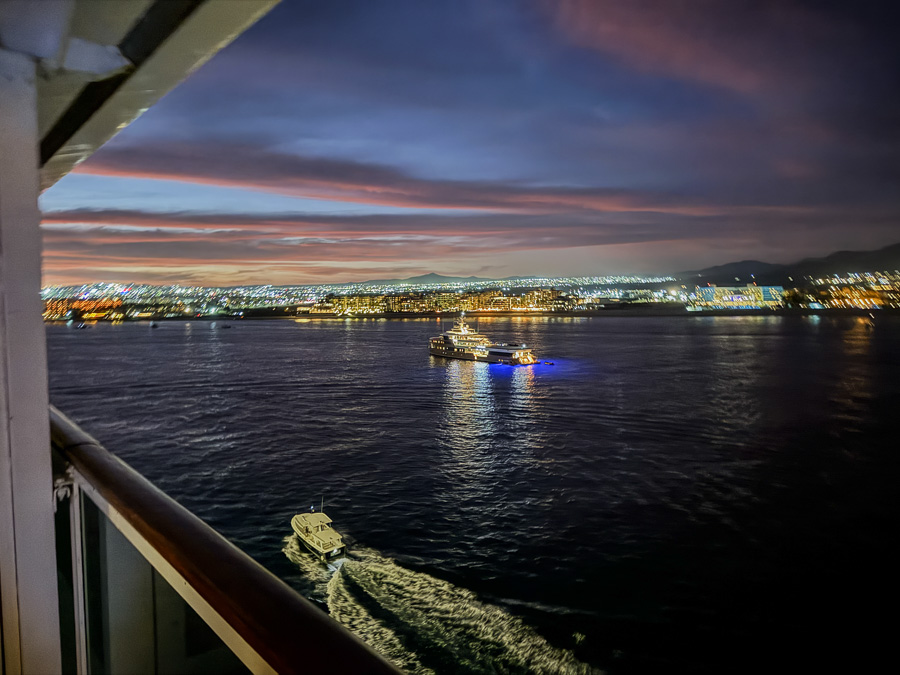
We sail off as the darkness fills the skies!
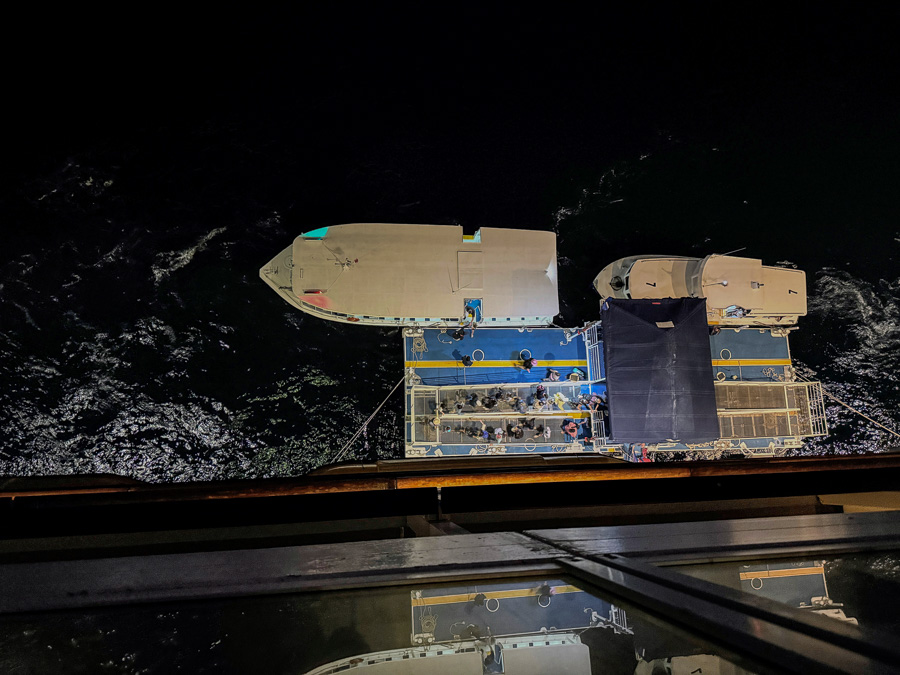
One person was late!

